- Interesting
- Scholarships
- UGC-CARE Journals

45 Software Tools for Writing Thesis
Boost Your Thesis Writing with Essential Software Tools
Writing a thesis is a significant milestone in any academic journey. It demands an immense amount of dedication, research, and organization. To streamline your thesis writing process and ensure a well-crafted and cohesive document, it’s crucial to equip yourself with the right software tools. In this article, iLovePhD will explore some of the most important software tools you need to effectively write your thesis. These tools encompass a range of areas, including research, writing, organization, and productivity. Let’s dive in!
Discover the must-have software tools for writing a successful thesis. Streamline your research and boost productivity today!
Master Your Thesis Writing with These Essential Software Tools
1. reference management software.
Comprehensive reference management software , such as Zotero, Mendeley, or EndNote, is a must-have tool for any thesis writer. These tools help you organize and manage your references efficiently, generate citations in different formats, and create a bibliography effortlessly. They save time, eliminate the risk of citation errors, and facilitate the seamless integration of references into your thesis. Here is a list of the top ten reference management software tools:
Zotero is a free and open-source reference management tool that helps you collect, organize, and cite research sources. It has a user-friendly interface and offers features like web browser integration and collaboration options.
1.2 EndNote
EndNote is a popular reference management software used by researchers, students, and librarians. It allows you to store, organize, and format bibliographic references, and it offers a wide range of citation styles.
1.3 Mendeley
Mendeley is a reference manager and academic social network. It enables you to organize your references, collaborate with others, and discover new research articles. Mendeley offers both free and premium versions.
1.4 RefWorks
RefWorks is a web-based reference management tool that helps you store and organize your references. It offers features like citation formatting, collaboration options, and document sharing.
Citavi is a comprehensive reference management and knowledge organization tool. It allows you to manage references, create citations, and organize your research materials. Citavi is commonly used by students and researchers.
JabRef is an open-source reference manager that specializes in handling bibliographies in BibTeX format. It is cross-platform compatible and offers features like customizable citation styles and integration with LaTeX editors.
1.7 ReadCube Papers
ReadCube Papers is a reference management tool that focuses on enhancing the reading experience of research papers. It offers features like PDF annotation, article discovery, and cloud-based reference syncing.
1.8 Paperpile
Paperpile is a reference manager designed specifically for Google Docs and Google Scholar. It provides seamless integration with Google services and offers features like citation formatting and collaboration tools.
Colwiz is a reference management, collaboration, and research discovery platform. It allows you to organize your references, collaborate with colleagues, and discover new research articles.
Qiqqa is a reference management software that offers features like PDF management, annotation tools, and citation generation. It also includes advanced features like full-text search and note-taking capabilities.
These are just a few of the popular reference management software tools available. Each tool has its own unique features and capabilities, so it’s worth exploring them further to find the one that best suits your needs.
2. Word Processing Software:
While this might seem obvious, using powerful word-processing software is essential. Microsoft Word and Google Docs are popular choices due to their robust features and compatibility. These tools provide a professional writing environment, including features like spell check, grammar correction, formatting options, and word count tracking. Additionally, they offer collaborative features, making it easier to seek feedback from advisors or peers. Here are the top five word-processing software tools:
2.1 Microsoft Word
Microsoft Word is one of the most popular and widely used word-processing software tools. It offers a comprehensive range of features for creating, editing, and formatting documents. It includes a user-friendly interface, collaboration tools, templates, and advanced formatting options.
2.2 Google Docs
Google Docs is a web-based word-processing tool offered by Google. It allows users to create and edit documents online, collaborate in real-time, and easily share documents with others. Google Docs also provides cloud storage, offline access, and seamless integration with other Google services.
2.3 Apple Pages
Pages is the word processing software included in Apple’s iWork suite. It is designed specifically for macOS and iOS devices and offers a clean and intuitive interface. Apple Pages provide a variety of templates, advanced typography tools, collaboration features, and seamless integration with other Apple products.
2.3 LibreOffice Writer
LibreOffice Writer is a free and open-source word processing software that is part of the larger LibreOffice suite. It offers a range of features comparable to Microsoft Word, including extensive formatting options, styles, templates, and compatibility with various document formats.
2.4 WPS Office Writer
WPS Office Writer is a popular word-processing tool that provides a free alternative to Microsoft Word. It offers a familiar interface, supports a wide range of file formats, and includes features such as document collaboration, templates, and extensive formatting options.
Please note that the popularity and preference for word processing software can vary depending on individual needs and preferences.
3. Research Databases and Search Engines:
Conducting thorough research is a cornerstone of thesis writing. Access to reliable research databases , such as PubMed, JSTOR, or IEEE Xplore, is vital. These platforms provide access to a vast array of scholarly articles, journals, books, and conference papers. Additionally, search engines like Google Scholar and Scopus can help you discover relevant literature and enhance your research capabilities. Here are the top five research databases and search engine tools commonly used:
PubMed is a widely used research database in the field of medicine and life sciences. It provides access to a vast collection of biomedical literature, including articles from scientific journals, books, and conference proceedings.
3.2 Google Scholar
Google Scholar is a freely accessible search engine that indexes scholarly literature across various disciplines. It includes articles, theses, books, conference papers, and more. It provides a convenient way to search for academic resources from multiple sources.
3.3 IEEE Xplore
IEEE Xplore is a digital library that focuses on electrical engineering, computer science, and related disciplines. It provides access to a vast collection of technical documents, including journal articles, conference papers, standards, and ebooks.
3.4 ScienceDirec t
ScienceDirect is a leading full-text scientific database offering access to a wide range of scholarly literature in various fields. It covers subjects such as physical sciences, engineering, life sciences, health sciences, and social sciences. ScienceDirect includes journals, books, and conference proceedings.
JSTOR is a digital library that provides access to a vast collection of academic journals, books, and primary sources across multiple disciplines. It covers subjects such as arts, humanities, social sciences, and more. JSTOR is particularly useful for historical research and accessing older publications.
These tools offer comprehensive access to scholarly literature and can be valuable resources for researchers, academics, and students. However, depending on your specific field or research area, there may be other specialized databases and search engines that are more relevant to your needs.
4. Note-Taking Tools
Keeping track of ideas, concepts, and findings is crucial during the research process. Note-taking tools like Evernote, OneNote, or Notion can be immensely helpful. These tools allow you to create and organize digital notes, attach files, insert images, and even collaborate with others. The ability to access your notes across different devices ensures seamless integration with your thesis writing workflow. Here are the top five note-taking tools commonly used in research:
4.1 Microsoft OneNote
OneNote is a versatile note-taking tool that allows you to create and organize notes in a free-form manner. It offers features such as text formatting, audio and video recording, image embedding, and cross-platform synchronization.
4.2 Evernote
Evernote is a popular note-taking tool that enables users to capture, organize, and search their notes across multiple devices. It offers features like text formatting, web clipping, file attachments, and collaboration options.
Zotero is a powerful research tool specifically designed for academic and research purposes. It allows you to collect, organize, cite, and share research materials such as articles, books, web pages, and more. It also integrates with word processors for easy citation management.
Notion is an all-in-one productivity tool that can be used for note-taking, task management, project planning, and more. It provides a flexible and customizable workspace where you can create and organize notes using a combination of text, tables, lists, media, and more.
4.5 Google Keep
Google Keep is a simple and lightweight note-taking tool that integrates well with other Google services. It offers basic note-taking features, including text, voice, and image notes, as well as checklists and reminders. It also syncs across devices and allows for easy collaboration.
These software tools provide various features and functionalities, so it’s worth exploring them to find the one that best fits your specific research needs and preferences.
5. Plagiarism Checkers
Maintaining academic integrity is of utmost importance when writing a thesis. Reference checkers like Grammarly and Turnitin can help ensure proper citation usage, prevent accidental plagiarism, and improve the overall quality of your writing. These tools provide detailed reports on potential issues and suggest corrections, thereby enhancing the credibility and originality of your work. There are several plagiarism checker tools available for researchers to ensure the originality of their work. Here is a list of ten popular plagiarism checker tools used in research :
5.1 Turnitin
Turnitin is one of the most widely used plagiarism detection tools, often integrated into educational institutions’ systems. It compares submitted work against a vast database of academic content, publications, and internet sources.
5.2 Grammarly
While primarily known as a grammar and writing assistance tool, Grammarly also offers a plagiarism checker feature. It scans the text for similarities against various online sources and provides a detailed report.
5.3 Copyscape
Copyscape is an online plagiarism checker used to detect copied content. It searches the web for matching content and provides a list of URLs where the content has been found.
5.4 Plagscan
Plagscan is a comprehensive plagiarism checker that compares documents against multiple sources, including academic journals, websites, and its extensive database. It offers a detailed report highlighting potential matches.
5.5 DupliChecker
DupliChecker is a free online plagiarism checker that scans the text against various online sources and offers a percentage of similarity along with highlighted matches.
5.6 Unicheck
Unicheck is a cloud-based plagiarism detection tool specifically designed for educational institutions. It compares submitted documents against a massive database to identify potential instances of plagiarism.
5.7 Quetext
Quetext is an AI-powered plagiarism checker that scans documents for similarities against an extensive database of academic content and web sources. It provides a detailed report with highlighted matches.
5.8 Plagiarism CheckerX
Plagiarism CheckerX is a software-based plagiarism detection tool that scans documents against online sources, academic databases, and publications. It offers an easy-to-understand report highlighting similarities.
5.9 WriteCheck
WriteCheck is a plagiarism checker developed by Turnitin. It allows users to submit their work and receive an originality report, indicating potential matches found in the database.
Viper is a free plagiarism checker that scans documents for similarities against online sources. It provides a detailed report and also offers additional features for academic users.
6. Project Management and Task Tracking software Tools:
Thesis writing involves managing numerous tasks, deadlines, and milestones. Employing project management and task tracking tools like Trello, Asana, or Todoist can greatly aid in staying organized. These tools enable you to create task lists, set deadlines, allocate priorities, and collaborate with others. Visualizing your progress and breaking down the writing process into smaller, manageable tasks boosts productivity and helps you meet your targets effectively. When it comes to project management and task tracking tools for thesis writing, there are several options available. Here are five popular ones:
Trello is a highly visual project management tool that allows you to organize tasks and projects on virtual boards. You can create lists, add cards for individual tasks, set due dates, and collaborate with others. Trello’s flexibility makes it suitable for organizing research materials, outlining chapters, and tracking progress.
Asana is a comprehensive project management tool that helps you track tasks, assign responsibilities, set deadlines, and communicate with your team. It provides features such as task dependencies, subtasks, and file attachments, making it useful for managing complex thesis projects with multiple contributors.
6.3 Microsoft Project
Microsoft Project is a powerful project management software that offers robust features for planning, scheduling, and tracking projects. It allows you to create Gantt charts, set milestones, allocate resources, and monitor progress. While it may have a steeper learning curve compared to other tools, it offers extensive functionality for managing large-scale thesis projects.
6.4 Todoist
Todoist is a simple yet effective task-tracking tool that helps you create and manage to-do lists. It allows you to set due dates, prioritize tasks, and create recurring tasks. You can also collaborate with others by sharing tasks and adding comments. Todoist’s intuitive interface and cross-platform availability make it a popular choice for individual thesis writers.
6.5 Evernote
Although not strictly a project management tool, Evernote is a versatile note-taking application that can be invaluable for thesis writing. It allows you to capture and organize research notes, save web clippings, create to-do lists, and attach files. With its powerful search functionality and synchronization across devices, Evernote helps you stay organized and retrieve information quickly.
The choice of the tool ultimately depends on your specific needs and preferences. It’s a good idea to try out a few options and see which one aligns best with your workflow and project requirements.
7. Data Analysis and Visualization Tools:
For research involving data analysis, tools like SPSS, R, or Excel can be invaluable. These tools provide powerful statistical analysis capabilities, allowing you to draw meaningful insights from your data. Additionally, visualization tools like Tableau or Python’s Matplotlib can help present your findings in a visually appealing and easy-to-understand manner. There are several popular data analysis and visualization tools used in thesis writing. Here are the top five tools:
R is a widely used open-source programming language for statistical analysis and data visualization. It provides a vast number of packages and libraries specifically designed for data analysis. R allows you to perform various statistical tests, create visualizations, and generate reports, making it a popular choice among researchers.
Python is another powerful programming language commonly used for data analysis and visualization. It offers libraries like NumPy, Pandas, and Matplotlib, which provide efficient data manipulation, analysis, and plotting capabilities. Python’s versatility and ease of use make it a preferred choice for researchers in various domains.
7.3 Tableau
Tableau is a popular data visualization tool that allows users to create interactive and visually appealing charts, graphs, and dashboards. It provides a user-friendly interface for exploring and analyzing data from various sources. Tableau offers advanced features for storytelling and data presentation , making it suitable for thesis writing and research projects.
SPSS (Statistical Package for the Social Sciences) is a software package widely used in social science research. It provides a comprehensive set of tools for data analysis, including descriptive statistics, regression analysis, and hypothesis testing. SPSS also offers data visualization capabilities to present research findings effectively.
Microsoft Excel is a widely available spreadsheet program that offers basic data analysis and visualization functionalities. It is often used for organizing and manipulating data, performing simple statistical calculations, and creating basic charts. While Excel may not be as powerful as specialized data analysis tools, it remains a popular choice due to its familiarity and ease of use.
These tools provide researchers with a range of options for data analysis and visualization, allowing them to choose the one that best suits their needs and preferences.
Conclusion:
Writing a thesis can be a challenging yet rewarding experience. By equipping yourself with the right tools, you can streamline your workflow, enhance your research capabilities, and produce a well-structured thesis. Remember, the tools mentioned in this article are meant to assist and optimize your writing process, but it’s crucial to adapt them to your specific needs and preferences. Embrace these tools, and let them empower you to create a compelling thesis that showcases your academic prowess. Happy writing!
Various Software Tools for Writing Thesis:
Writing Softwares for Thesis
Research Tools for Thesis Writing
Citation Management Tools for Thesis
Plagiarism Checkers for Thesis Writing
Grammar and Proofreading Tools for Thesis
Formatting Tools for Thesis Writing
Reference Management Tools for Thesis
Data Analysis Tools for Thesis Writing
Literature Review Tools for Thesis
Time Management Tools for Thesis
Collaboration Tools for Thesis Writing
Presentation Tools for Thesis Defense
Thesis Writing Templates and Samples
Tips and Techniques for Thesis Writing
Common Challenges in Thesis Writing
Thesis Writing Resources and Guides
FAQ on Tools for Writing Thesis
- ai thesis generator
- analytical thesis statement generator
- argumentative thesis statement generator
- best paraphrasing tool for thesis
- best paraphrasing tool for thesis free
- paraphrasing tool for thesis
- paraphrasing tool for thesis writing
- persuasive thesis statement generator
- strong thesis statement generator
- thesis outline generator
- thesis paraphrasing tool
- thesis question generator
- thesis sentence generator
- thesis statement finder tool
- thesis statement generator
- thesis statement generator for essay
- thesis statement generator for research paper
- thesis statement tool
- thesis writing software
- thesis writing software free download
480 UGC CARE List of Journals – Science – 2024
100 cutting-edge research ideas in civil engineering, what is a phd a comprehensive guide for indian scientists and aspiring researchers, most popular, the nippon foundation fellowship programme 2025, fellowships in india 2024 -comprehensive guide, agi in research: unraveling the future of artificial intelligence, working sci-hub proxy links 2024: access research papers easily, abstract template for research paper, 10 types of plagiarism – every academic writer should know – updated, the harsh reality: why revoked graduate degrees aren’t easily reclaimed, best for you, 24 best online plagiarism checker free – 2024, popular posts, top 35 scopus indexed journals in english literature, newly accepted scopus indexed journals june 2024, popular category.
- POSTDOC 317
- Interesting 257
- Journals 235
- Fellowship 134
- Research Methodology 102
- All Scopus Indexed Journals 93
Mail Subscription

iLovePhD is a research education website to know updated research-related information. It helps researchers to find top journals for publishing research articles and get an easy manual for research tools. The main aim of this website is to help Ph.D. scholars who are working in various domains to get more valuable ideas to carry out their research. Learn the current groundbreaking research activities around the world, love the process of getting a Ph.D.
Contact us: [email protected]
Google News
Copyright © 2024 iLovePhD. All rights reserved
- Artificial intelligence

25+ Dissertation & Thesis Writing Apps
Everything You Need To Optimise Your Research Journey
Contributors: Derek J ansen (MBA), Kerryn Warren (PhD) & David Phair (PhD) | May 2024
Completing your dissertation or thesis requires a hearty investment of time, effort and hard work. There’s no shortcut on the road to research success, but as with anything, there are ways to optimise the process and work smarter.
Here, we’ll share with you a wide range of apps, software and services that will make your life a little easier throughout the research process. While these apps can save you a lot of time, remember that your dissertation or thesis needs to be your own work – no tool should be doing the writing on your behalf. Also, be sure to check your university’s policy regarding AI-based tools and support before using any apps, tools or software.
Overview: Dissertation & Thesis Apps
- Literature review
- Data collection
- Qualitative data analysis
- Quantitative data analysis
- Writing & Plagiarism
- Project management
- Reference management
- Honourable mentions
Literature Review & Search Apps
The following apps and tools can help you discover, analyse, and synthesise scholarly materials, significantly streamlining the literature review process.
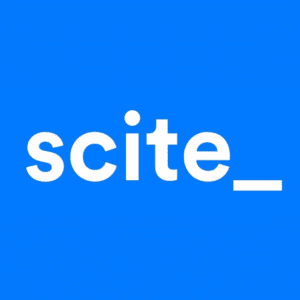
Scite AI – Find & evaluate sources
The Scite AI app uses ‘Smart Citations’ to show how academic papers are discussed—i.e., supported, contradicted, or mentioned. This can help you fast-track the literature review process and source highly relevant papers quickly.

Petal – Chat with your literature
Petal is an AI-driven tool that revolutionises your interaction with documents by enabling direct, context-aware conversations. Upload an article and it will swiftly summarise its contents and allow you to ask questions about the specific study (or studies).
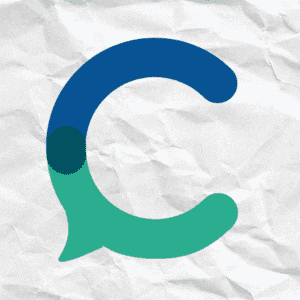
Consensus – ChatGPT for academia
The Consensus app uses a powerful AI engine to connect you to over 200 million scientific papers. It allows precise searches and efficiently summarises key research findings . PS – Get 40% off Consensus Premium by using the coupon code GRADCOACH40.

Litmaps – Visualise related papers
This app is great for quickly identifying relevant research. For any given keyword or resource, it will provide you with a visual citation network, showing how studies are interconnected. This reveals both direct and tangential connections to other research, highlighting gaps and key discussions within your field.
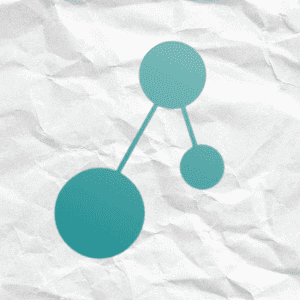
Connected Papers – An alternative
Similar to Litmaps, Connected Papers visually maps academic research, simplifying how you explore related studies. Just input a paper, and it charts connections, helping identify key literature and gaps. It’s ideal for staying updated on emerging research.
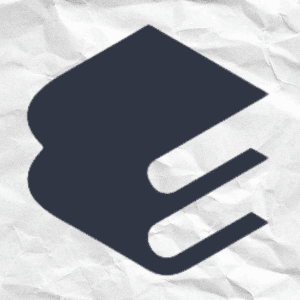
Elicit – An “AI research assistant”
Another AI-powered tool, Elicit automates the discovery, screening, and data extraction from academic papers efficiently. This makes it useful for systematic reviews and meta-analyses, as it allows you to focus on deeper analysis across various fields.
Data Collection & Preparation
These apps and tools can assist you in terms of collecting and organising both qualitative and quantitative data for your dissertation or thesis.

SurveyMonkey – Simple surveys
SurveyMonkey is a versatile tool for creating and distributing surveys. It simplifies collecting and analysing data, helping you craft surveys that generate reliable results. Well suited for the vast majority of postgraduate research projects.
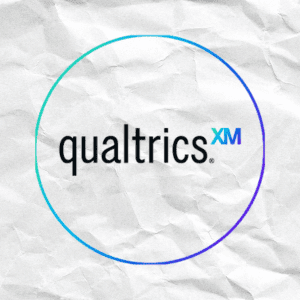
Qualtrics – An alternative
Qualtrics is a comprehensive survey tool with advanced creation, distribution, and analysis capabilities. It supports complex survey designs and robust data analysis, making it ideal for gathering detailed insights and conducting high-quality research.
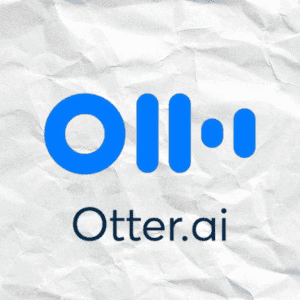
Otter – Easy draft transcription
Otter is an AI-powered transcription tool that converts spoken words into text. It captures and transcribes lectures, interviews, and meetings in real time. Naturally, it’s not 100% accurate (you’ll need to verify), but it can certainly save you some time.
Qualitative Data Analysis
These software packages can help you organise and analyse qualitative data for your dissertation, thesis or research project.
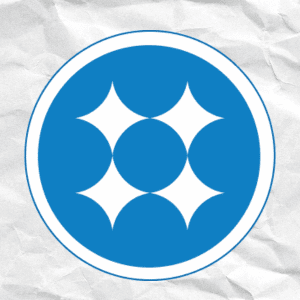
NVivo – All-in-one qual platform
NVivo is a powerful qualitative data analysis software that facilitates data organisation, coding, and analysis. It supports a wide range of data types and methodologies, enabling detailed analysis and helping you extract rich insights from your data.
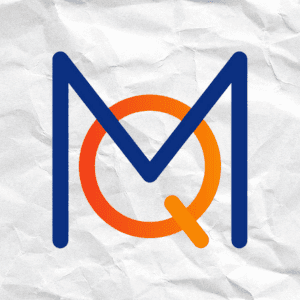
MaxQDA – QDA simplified
MAXQDA is a robust qualitative data analysis software that helps you systematically organise, evaluate, and interpret complex datasets. A little easier to get started with than NVivo, it’s ideal for first-time dissertation and thesis writers.
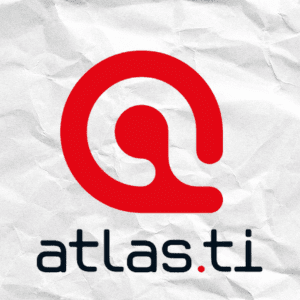
ATLAS.ti – For large datasets
ATLAS.ti offers robust tools for organising, coding, and examining diverse materials such as text, graphics, and multimedia. It’s well-suited for researchers aiming to weave detailed, data-driven narratives as it streamlines complex analysis tasks efficiently.
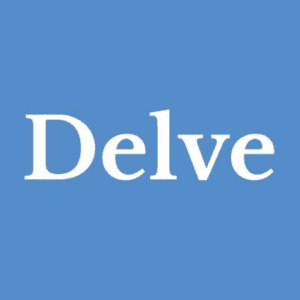
Delve – An intuitive interface
Delve is an intuitive qualitative data analysis tool designed to streamline the qualitative analysis process. Ideal for dissertations, Delve simplifies the process from initial data organisation to in-depth analysis, helping you efficiently manage and interpret complex datasets for clearer insights.
Quantitative (Statistical) Data Analysis
These software packages can help you organise and analyse quantitative (statistical) data for your dissertation, thesis or research project.
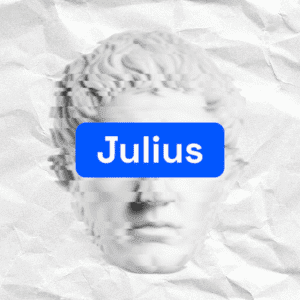
Julius – Your “AI data analyst”
Julius is an AI-powered data analysis tool that simplifies the process of analysing and visualising data for academic research. It allows you to “chat” with your data, create graphs, build forecasting models, and generate comprehensive analyses.
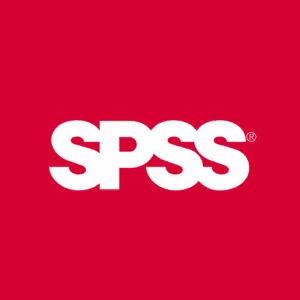
IBM SPSS – The “old faithful”
The OG of statistical analysis software, SPSS is ideal for students handling quantitative data in their dissertations and theses. It simplifies complex statistical testing, data management, and graphical representation, helping you derive robust insights.
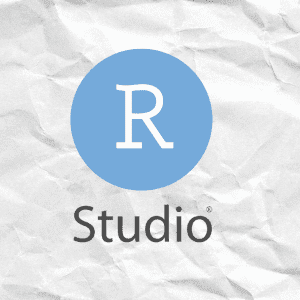
R Studio – For the data wizards
While admittedly a little intimidating at first, R is a versatile software for statistical computing. It’s well-suited for quantitative dissertations and theses, offering a wide range of packages and robust community support to streamline your work.
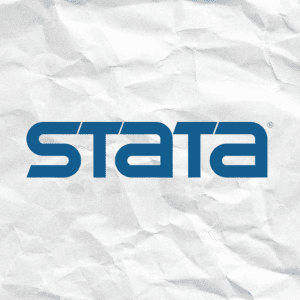
STATA – For the data scientists
Stata is yet another comprehensive statistical software widely used for data management, statistical analysis, and graphical representation. It can efficiently handle large datasets and perform advanced statistical analyses.
Writing Improvement & Plagiarism Tools
These apps and tools can help enhance your writing and proactively identify potential plagiarism issues.
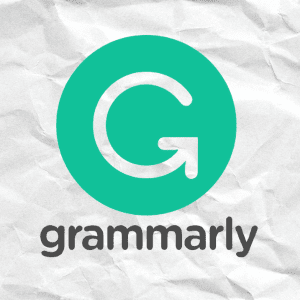
Grammarly – Improve your writing
Grammarly is a writing assistant that can help enhance academic writing by checking for errors in grammar, spelling, and punctuation in real time. It also features a plagiarism detection system , helping you to proactively avoid academic misconduct.
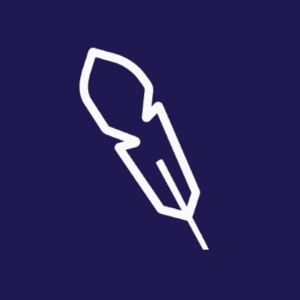
Jenni – An AI “writing assistant”
Jenni AI helps you draft, cite, and edit with ease, streamlining the writing process and tackling writer’s block. Well suited for ESL students and researchers, Jenni helps ensure that your work is both precise, clear and grammatically sound.

Quillbot – Paraphrasing simplified
Quillbot is yet another AI-powered writing tool that can help streamline the writing process. Specifically, it can assist with paraphrasing , correcting grammar, and improving clarity and flow. It also features a citation generator and plagiarism checker .
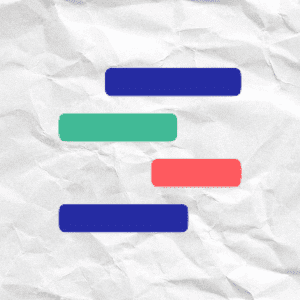
Quetext – Solid plagiarism checking
Quetext is a plagiarism detection tool that helps ensure the originality of your academic work. It cross-references your documents against extensive online databases to highlight potential plagiarism and generate detailed reports.
Project & Time Management
These apps can help you plan your research project and manage your time, so that you can work as efficiently as possible.

GanttPro – PM simplified
An intuitive project management tool, GanttPro simplifies planning and tracking for dissertations or theses. It offers detailed Gantt charts to visualise task timelines, dependencies, and progress, helping you ensure timely completion of each section.

Trello – Drag-and-drop PM
Trello is a versatile project management tool that helps you organise your dissertation or thesis process effectively. By creating boards for each chapter or section, you can track progress, set deadlines, and coordinate tasks efficiently.
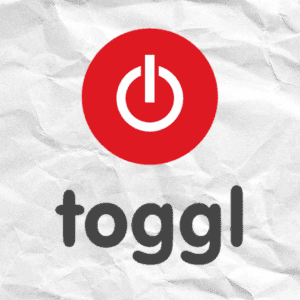
Toggl – Make every minute count
A user-friendly time-tracking app that helps you manage your research project effectively. With Toggl, you can precisely track how much time you spend on specific tasks. This will help you avoid distractions and stay on track throughout your journey.
Reference Management
These apps and tools will help you keep your academic resources well organised and ensure that your citations and references are perfectly formatted, every time.

Mendeley – Your citations, sorted
Mendeley is your go-to reference management tool that simplifies academic writing by keeping your sources neatly organised. Perfect for dissertations and theses, it lets you easily store, search, and cite your resources directly in MS Word.

Zotero – Great for Google Docs
Zotero is a free-to-use reference manager that ensures your sources are well-organised and flawlessly cited. It helps you collect, organise, and cite your research sources seamlessly. A great alternative to Mendeley if you’re using Google Docs.

Endnote – A paid option
Yet another reference management option, Endnote is sometimes specifically required by universities. It efficiently organises and stores research materials, making citation and bibliography creation (largely) effortless.
Honourable Mentions
Now that we’ve covered the more “exciting” dissertation apps and tools, it’s worth quickly making one or two mundane but essential mentions before we wrap up.
You’ll need a reliable word processor.
In terms of word processors, Microsoft Word will likely be your go-to, but it’s not the only option. If you don’t have a license for Word, you can certainly consider using Google Docs, which is completely free. Zotero offers a direct integration with Google Docs, making it easy to manage your citations and references. If you want to go to the other extreme, you can consider LaTeX, a professional typesetting software often used in academic documents.
You’ll need cloud storage.
The number of times we’ve seen students lose hours, days or even weeks’ worth of hard work (and even miss the submission deadline) due to corrupted flash drives or hard drives, coffee-soaked laptops, or stolen computers is truly saddening. If you’re not using cloud storage to save your work, you’re running a major risk. Go sign up for any of the following cloud services (most offer a free version) and save your work there:
- Google Drive
- iCloud Drive
Not only will this ensure your work is always safely stored (remember to hit the Save button, though!), but it will make working on multiple devices easier, as your files will be automatically synchronised. No need to have multiple versions between your desktop, laptop, tablet, etc. Everything stays in one place. Safe, secure, happy files.
Need a helping hand?

Key Takeaways: Dissertation & Thesis Apps
And there you have it – a hearty selection of apps, software and services that will undoubtedly make your life easier come dissertation time.
To recap, we’ve covered tools across a range of categories:
Remember, while these apps can help optimise your dissertation or thesis writing journey, you still need to put in the work . Be sure to carefully review your university’s rules and regulations regarding what apps and tools you can use – especially anything AI-related.
Have a suggestion? We’d love to hear your thoughts. Simply leave a comment below and we’ll consider adding your suggested app to the list.
15 Comments
It seems some of the apps mentioned are not android capable. It would be nice if you mentioned items that everyone could use.
Thanks for the feedback, Gale!
Yet to explore some of your recommended apps. I am glad to commend on one app that I have started using, Mendeley. When it comes to referencing it really helps a lot.
Great to hear that, Maggie 🙂
I have got Mendeley and it is fantastic. I have equally downloaded Freemind but I am yet to really understand how to navigate through it.
Based on your YouTube lessons,my literature review and the entire research has been simplified and I am enjoying the flow now,more than ever before.
Thank you so much for your recommendations and guide.It’s working a great deal for me.
Remain blessed!
Thank you for all the amazing help and tutorials. I am in the dissertation research proposal stage having already defended the qualifying paper. I am going to implement some of your advice as I revise chapters 1 & 2 and expand chapter 3 for my research proposal. My question is about the writing– or specifically which software would you recommend. I know MS Word can get glitchy with larger documents. Do the “reference” apps you recommend work with other options such as LaTeX? I understand that for some programs the citations won’t be integrated or automated such as cite while you write etc.. I have a paid version of endnote, and free versions of mendeley and zotero. I have really only used endnote with any fidelity but I’m willing to adapt. What would you advise at this point?
Thanks for your comment and for the kind words – glad to hear that the info is useful.
Generally, Word works reasonably well for most research projects and is our first recommendation. As long as one keeps the document clean (i.e. doesn’t paste in loads of different styles, ultra high-res images, etc), it works fine. But I understand that it’s not perfect for absolutely huge projects.
Regarding referencing with Latex, this article covers how to use Mendeley with Latex – https://blog.mendeley.com/2011/10/25/howto-use-mendeley-to-create-citations-using-latex-and-bibtex/ . Perhaps it will be useful. I hesitate to tell you to adopt software X or Y, or to move from Endnote, as each software has its strengths and weaknesses, and performs better in certain contexts. I’m not familiar with your context, so it’s not possible for me to advise responsibly. Mendeley works well for the vast majority of our students, but if there’s a very specific bit of functionality that draws you to Endnote, then it may be best to stick with it. My generic advice would be to give Mendeley a try with some sample references and see if it has the functionality you need.
I hope this helps! Best of luck with your research 🙂
Thank you for your amazing articles and tips. I have MAC laptop, so would Zotero be as good as Mendeley? Thank you
Derek would you share with me your email please, I need to talk to you urgently.
I need a free Turnitin tool for checking plagiarism as for the tools above
I have been going crazy trying to keep my work polished and thesis or dissertation friendly. My mind said there had to be a better way to do literature reviews. Thank God for these applications. Look out world I am on my way.
Wow Thanks for this write-up i find it hard to track down extremely good guidance out there when it comes to this material appreciate for the publish site
Sir I have chosen topic substance abuse and psychological makeup a study on secondary school students but my supervisor told me to see some variable on this on which u work plz Need ur help
Submit a Comment Cancel reply
Your email address will not be published. Required fields are marked *
Save my name, email, and website in this browser for the next time I comment.
- Print Friendly
- DSpace@MIT Home
- MIT Libraries
- Graduate Theses
Chasing zero variability in software performance
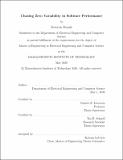
Other Contributors
Terms of use, description, date issued, collections.
Show Statistical Information
Best Software Tools for Writing Thesis
A significant milestone in your academic career is the completion of a thesis. It requires a substantial amount of commitment and research skills for its completion. It’s critical that you familiarize yourself with the necessary software tools in order to quicken and streamline the writing of your thesis.
1. Word processing software
Word processing software serves as the foundation of your thesis writing process. These tools provide a structured and user-friendly environment that empowers you to bring your ideas to life.
1. Microsoft Word
2. google docs.
Google Docs, a web-based word-processing tool, is an excellent choice for thesis writers who need seamless collaboration with advisors or peers. It allows real-time collaboration, making it easy to seek feedback and make revisions together. Google Docs also offers cloud storage and integrates effortlessly with other Google services, ensuring your work is accessible from anywhere.
3. LibreOffice Writer
4. wps office writer, 2. reference management software.
Thesis writing revolves around citing a multitude of sources, from research papers and books to articles and websites. Managing these references manually can be an overwhelming task, prone to errors and inefficiencies. This is where reference management software comes to the rescue.
2. Mendeley
Mendeley, a reference manager and academic social network, not only helps you organize your references but also facilitates collaboration with peers. Its combination of reference management, research discovery, and free and premium versions makes it a robust tool for thesis writers.
4. RefWorks
Citavi is more than just a reference manager; it’s a comprehensive knowledge organization tool. It allows you to manage references, create citations, and organize research materials effectively—a favorite among students and researchers alike.
7. ReadCube Papers
8. paperpile.
Paperpile is tailor-made for Google Docs and Google Scholar users. It interacts perfectly with Google services and provides citation formatting and collaboration tools, resulting in a smooth thesis writing process.
3.Search engines and research databases
Researching a thesis thoroughly is an essential part of the writing process. It is essential to have access to reputable research databases such as IEEE Xplore, JSTOR, or PubMed.
These tools are like treasure troves of academic knowledge, housing a vast collection of scholarly articles, journals, books, and conference papers across various fields. They serve as your gateway to relevant literature, enabling you to discover, access, and cite high-quality sources efficiently.
1. Google Scholar
3. ieee xplore.
If your thesis delves into electrical engineering, computer science, or related disciplines, IEEE Xplore is your go-to digital library. It provides access to a variety of technical documents, such as eBooks, conference papers, journal articles, and standards. It’s a goldmine for those seeking the latest advancements in technology.
4. ScienceDirect
4. plagiarism checkers.
Maintaining academic integrity is paramount when it comes to thesis writing. Plagiarism, whether intentional or accidental, can have severe consequences on your academic and professional future. This is where plagiarism checkers step in as invaluable allies.
1. Turnitin
2. grammarly.
Grammarly, known primarily as a grammar and writing assistance tool, also offers a robust plagiarism checker feature. It scans your text for similarities across various online sources and provides a detailed report, helping you maintain the originality of your thesis.
3. Copyscape
4. plagscan, 5. duplichecker.
DupliChecker is a free online plagiarism analyzer that compares your text to multiple web sources. It helps you keep your thesis unique on a tight budget by providing a percentage of similarity along with highlighted matches.
6. Unicheck
8. plagiarism checkerx.
Plagiarism is the act of copying another person’s work. CheckerX is an easy-to-use program that compares your thesis to publications, scholarly databases, and web sources. It provides an easy-to-understand report that highlights similarities, making it a simple alternative for researchers.
9. WriteCheck
5. project management software tools.
Writing a thesis requires managing several assignments, due dates, and milestones. Using project management and task tracking apps like Trello, Asana, or Todoist can help you stay organised.
Trello is a visually appealing project management solution that allows you to organise tasks and projects on virtual boards. You can work with others, add cards for specific tasks, make lists, and establish deadlines. Trello’s adaptable design makes it ideal for tracking your overall progress, organizing research resources, and outlining chapters. Trello makes it simple to see your thesis project through to completion.
3. Microsoft Project
A simple yet incredibly powerful task-tracking app, Todoist helps you make and keep track of to-do lists. You may prioritize activities, set deadlines, and make repeating tasks with it. Working together is also a breeze because you can remark and discuss tasks. Todoist is a popular alternative for individual thesis authors who want to keep organized and focused due to its user-friendly interface and cross-platform availability.
5. Evernote
6. tools for data analysis and visualisation.
Python, a well-liked programming language for data analysis is well-known for its versatility. Python’s modules, such as NumPy, Pandas, and Matplotlib, allow you to swiftly manipulate data, do statistical analysis, and generate amazing visualizations. Its user-friendly syntax makes it accessible to researchers from various backgrounds, enabling them to unlock the full potential of their data.
A popular software program in social science research is called SPSS (Statistical Package for the Social Sciences). It provides a full range of data analysis methods, such as regression analysis, hypothesis testing , and descriptive statistics. Additionally, SPSS has data visualization features that let you show your study findings accurately and effectively.
7. Note-Taking Tools
1. microsoft onenote.
Microsoft OneNote is like a digital notebook that allows you to create and organize notes in a free-form manner. Its versatility shines as you can format text, record audio and video, embed images, and sync your notes across devices. This tool is excellent for keeping detailed research notes, jotting down ideas, and creating structured outlines for your thesis.
2. Evernote
4. google keep.
Google Keep is a simple note-taking application that integrates effectively with other Google services. While it may not have the advanced features of some other tools, its simplicity is its strength. You can make checklists, reminders, and notes in text, audio, and image notes using Google Keep. It syncs seamlessly across devices and supports easy collaboration.
Other articles
Related posts, how is quillbot used in academic writing, using different statistical tools: a guide to choosing the right tool for data analysis, top ai tools for citation management, quillbot vs. grammarly: partners or competitors, how to avoid plagiarism with the quillbot paraphrasing tool, latex: essential tips for creating professional documents, top ai tools for literature review , vidnoz: how to leverage its key features for impactful videos, imagestotext.io: one-stop solution for all your digital needs, quillbot: unlocking the power of ai writing assistance, leave a reply cancel reply.

Best Tools For Thesis Writing: Dissertation and Academic Writing Tools
In the quest to master the art of thesis writing, selecting the right tools is crucial. This comprehensive guide introduces the best tools available for thesis writing, each tailored to enhance different aspects of the writing process.
From advanced language proofing to efficient reference management, these tools are designed to streamline your workflow, ensure academic integrity, and elevate the quality of your thesis. Discover how each tool can transform your thesis writing experience, making it more efficient and effective.
Best Tools For Thesis Writing
| – Advanced language proofing – Real-time editing integration with Word and Google Docs – Compatibility with reference management tools | |
| – Extensive plagiarism checking database – Real-time plagiarism detection in Word and Google Docs – Manages and formats citations | |
| – Comprehensive formatting and template features – Citation and bibliography management – Collaborative writing and review features | |
| – Graphic design for academic presentations – Template library for infographics and charts – Integrates with Word and Google Docs | |
| – Mind mapping for organizing ideas and research – Hierarchical structure for project planning – Real-time collaboration for team projects | |
| – AI-based brainstorming and outlining – Drafting and rephrasing assistance – Compatibility with academic writing tools | |
| – Research material management – Browser integration for source collection – Supports various citation formats |
Grammarly – Language Proof Your Thesis
Grammarly is not just a grammar checker; it also cater to various aspects of academic writing, from ensuring the originality of content to assisting with the intricacies of formatting and citation.
Grammarly integrates with word processing software like Microsoft Word and Google Docs. It facilitates real-time editing and proofreading, allowing students to refine their thesis statements and arguments as they write.
The tool’s compatibility with online sources is a boon for literature reviews, streamlining the process of integrating various studies and reports into a cohesive narrative.
It works with many reference management software, ensuring that all bibliographical entries are error-free and consistently formatted. These includes:
One of the lesser-known features of Grammarly is its ability to suggest rephrases for overused or unclear phrases, a common issue in lengthy academic pieces like dissertations or theses. This aids immensely in maintaining a clear and engaging narrative throughout the writing process.
Additionally, for students working with LaTeX for technical writing or complex document formatting, Grammarly’s ability to check the clarity and readability of text, when used in conjunction with a LaTeX editor, is invaluable.
Grammarly’s free version is robust enough to handle the basics of grammar, spelling, and punctuation. However, for a more in-depth analysis like vocabulary enhancement and advanced grammar checks, the premium version steps in.
Turnitin – Remove Plagiarism From Your Academic Writing
Turnitin is far more than just a plagiarism checker; Turnitin offers a suite of features that profoundly enhance the writing and research process.

One of Turnitin’s standout features is its ability to compare submitted work against an extensive database of academic papers, offering peace of mind to those concerned about inadvertent plagiarism in their dissertation writing.
This comparison includes a thorough check against online sources, making it a robust tool for literature reviews.
Turnitin’s integrates with word processing software like Microsoft Word and Google Docs. This way, you get real-time plagiarism detection, ensuring that all citations and references are accurately credited, a crucial aspect in academic integrity.
The software is also invaluable in managing the format and citation style of a thesis.
Whether it’s APA, MLA, or Chicago style, Turnitin helps ensure that your bibliography and in-text citations are correctly structured, thus avoiding common errors in academic writing.
Additionally, Turnitin’s feedback and grading tools are a boon for educators and students. They allow for detailed comments and suggestions, which can be crucial in refining a thesis statement or rephrasing sections for clarity and impact.
This feature is particularly beneficial in the revision phase of thesis writing.
Suppose you use reference management software like:
In this case, Turnitin’s compatibility ensures a seamless integration, making the management of bibliographies and citations more efficient.
This integration is especially helpful in disciplines requiring extensive reference management, such as in technical writing or legal studies.
Microsoft Word – Base For Your Thesis Writing
Microsoft Word, offers a plethora of features tailored for the rigorous demands of thesis writing and dissertation crafting. It’s more than just a word processor; it’s a comprehensive tool designed to streamline the writing process for students and researchers.
Microsoft Word’s template feature can be a game-changer for academic writing. You can set up a standard format for your thesis, including predefined styled for:
- Subheadings, and
This not only saves time but also helps in maintaining a professional look required for academic submissions.
One of the lesser-known yet incredibly handy features is the ability to create and manage citations and bibliographies.
Compatible with reference management software like Mendeley, Zotero, and EndNote, Word simplifies the process of citation, crucial in avoiding plagiarism and ensuring proper acknowledgment of sources.

For those dealing with extensive research papers, Word’s navigation pane is a boon. It allows easy mapping and reorganization of sections, crucial in maintaining a coherent structure in your thesis.
Word’s Review feature is invaluable for collaborative writing. It allows for tracking changes, inserting comments, and even comparing different versions of a document. This is particularly useful when multiple revisions are involved in the thesis writing process.
Freemind – Outline Your Dissertation
FreeMind, a mind mapping software, is an innovative tool that’s increasingly being utilized in the realm of academic writing, particularly for thesis and dissertation preparation.
This free, open-source software offers a dynamic way to organise:
- Research, and
At the heart of FreeMind’s utility is its ability to help students and researchers create visual outlines for their academic projects. This is particularly advantageous during the initial stages of thesis writing, where organizing a vast amount of information and ideas can be overwhelming.
FreeMind allows users to create nodes for each main idea or chapter of their thesis, to which they can add sub-nodes for more detailed points or references. This hierarchical structure makes it easier to map out the entire thesis, providing a clear overview of the project.
For graduate students embarking on extensive literature reviews, FreeMind can serve as a tool to categorize and link various sources and theories.
This not only aids in avoiding plagiarism by keeping track of citations but also helps in synthesising information from different sources cohesively.
Additionally, FreeMind’s compatibility with various word processing tools, like Microsoft Word and LaTeX, ensures that the transition from mind mapping to actual writing is seamless.
Its ability to export maps in multiple formats allows for easy integration into other software used in the writing process.
FreeMind’s real-time collaboration feature is a boon for those working on joint research papers or dissertations, facilitating brainstorming and idea-sharing among team members.
This feature, along with its intuitive interface, makes FreeMind a valuable asset in the toolkit of academic writing tools, enhancing both the efficiency and quality of academic writing projects.
ChatGPT – Best AI Writing Assistant
ChatGPT is based on advanced AI technology, and can be used to assist in various aspects of academic writing. This makes it a valuable asset for students and researchers.
In the context of thesis writing, ChatGPT can be utilized for brainstorming ideas, generating outlines, and even providing suggestions for thesis statements.
Its ability to process and generate text based on user prompts makes it an excellent tool for drafting initial versions of academic documents.
For those engaged in the laborious process of writing a dissertation, ChatGPT offers real-time assistance in:
- Rephrasing sentences,
- Enhancing clarity, and
- Suggesting alternative ways to present complex ideas.
For researchers conducting literature reviews, ChatGPT can help summarize articles, providing quick insights into their content. This is particularly useful when dealing with a large volume of literature.
However, it’s important to note that while ChatGPT is a powerful tool, it should be used to complement traditional research methods, ensuring accuracy and credibility in academic work.
ChatGPT’s versatility extends to its compatibility with various software tools used in academic writing, such as Microsoft Word, LaTeX, and softwares like Mendeley, Zotero, and EndNote. This compatibility streamlines the writing process, from initial research to the final draft.
Canva – Software Tools For Graphics
Canva, primarily known for its graphic design capabilities, is increasingly finding its way into the realm of academic writing, particularly in the visual presentation of complex data and information.

This tool, with its user-friendly interface, offers a fresh approach to creating visually appealing elements for theses, dissertations, and research papers.
In the process of thesis writing, Canva can be used to design compelling graphics, such as infographics and charts, which are essential in representing data in a more digestible format.
This is especially beneficial in fields where visual data presentation can significantly enhance the understanding of complex topics.
Canva’s vast library of templates and design elements allows for the creation of professional-looking graphics without the need for advanced design skills.
For graduate students working on dissertations, Canva provides an array of options to create layouts for posters or presentations, often required for thesis defenses or academic conferences.
The tool’s drag-and-drop feature simplifies the process of designing these materials, making it accessible even for those with limited graphic design experience.
For those concerned about plagiarism and citation, Canva can aid in creating original graphics, ensuring that your academic work remains unique and authentic.
While it doesn’t replace traditional writing software, Canva complements them by adding a visual dimension to academic writing, enhancing the overall impact and readability of scholarly work.
Zotero – Citation Tools For Writing
Zotero has become a cornerstone tool for academic writing, especially in the fields of thesis and dissertation writing.
As a comprehensive tool designed for students, researchers, and academic writers, Zotero simplifies the process of managing research materials, such as:
- Organizing, and
One of the standout features of Zotero is its ability to seamlessly integrate with browsers. This allows users to easily add sources from the web to their Zotero library with just a click.
For thesis writers who rely heavily on online sources for their literature review, this feature is a significant time-saver.

Zotero’s ability to automatically extract citation information and store it in an organized library simplifies the management of research sources.
Zotero offers robust support for various citation formats. Whether it’s:
- Chicago, or
Zotero can generate bibliographies and in-text citations in the chosen format, directly integrating with word processors like Microsoft Word and Google Docs. This integration is particularly beneficial for maintaining consistency in citations throughout a lengthy academic document.
Furthermore, Zotero stands out for its collaboration features. It allows users to share libraries with others, making it a useful tool for co-authored research papers or group projects.
The real-time syncing feature ensures that all members of a research group have access to the latest resources and references.
Zotero’s compatibility with PDF management tools and its ability to index the content of PDFs for easy searching adds another layer of efficiency. For graduate students and thesis writers, this means quick retrieval of information from a vast collection of saved research papers.
Wrapping Up: Best Academic Writing Apps And Tools
In conclusion, the journey of thesis writing is made significantly smoother with the aid of these versatile tools. From Grammarly’s meticulous language polishing to Zotero’s efficient citation management, each tool offers unique capabilities to enhance your academic writing.
By integrating these resources into your workflow, you can focus more on the content and quality of your thesis, ensuring a well-crafted, professionally presented final document. Embrace these tools to unlock your full potential in academic writing and research.

Dr Andrew Stapleton has a Masters and PhD in Chemistry from the UK and Australia. He has many years of research experience and has worked as a Postdoctoral Fellow and Associate at a number of Universities. Although having secured funding for his own research, he left academia to help others with his YouTube channel all about the inner workings of academia and how to make it work for you.
Thank you for visiting Academia Insider.
We are here to help you navigate Academia as painlessly as possible. We are supported by our readers and by visiting you are helping us earn a small amount through ads and affiliate revenue - Thank you!

2024 © Academia Insider

Thesis Help: 95 Best Online Tools for Thesis Writing

Writing a thesis is like being sentenced to life and hard labor in libraries. Forget regular working hours or your natural right to sleep and rest. Only successful defense of your project will break you free.
- Word Processing and Taking Notes
- Knowledge Management
- Student Planners
- Bibliography Helpers
- Academic Research Tools
- Productivity Apps
- Vocabulary Builders
- Dictionaries
- Plagiarism Check
- Grammar and Style Check
The following free tools, however, provide a ray of hope. Draconian time management and supernatural self-organization can help you cope with your thesis faster. Optimize the process and enjoy the time you save.
📝 Word Processing and Taking Notes
Although you may be used to Microsoft Word, the following free alternatives can be of much help for thesis writing:
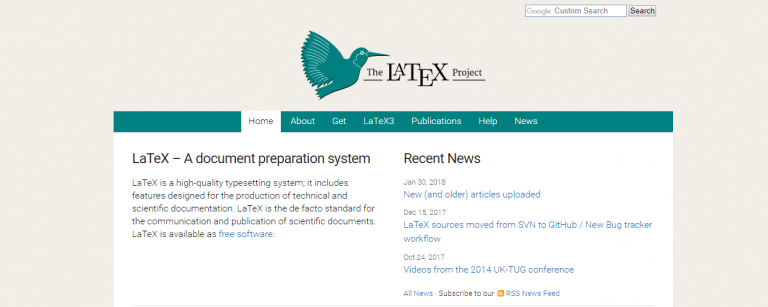
- LaTeX is a high-quality system equipped with special features for technical and scientific documentation. A great tool for thesis help due to its user-friendly interface and dozens of helpful features. For example, the tool automatically generates bibliographies and indexes.
- LyX is a free document processor that emphasizes the importance of document structure.
- Scrivener is a popular text-editing tool for Windows users. Use one of several templates to construct your document. There are also labeling options available during the working process.
- XMind is an easy-to-use text-editing and mind-mapping tool. Develop essay maps with this paper editor you can use on an iPhone or iPad for creating, editing, and storing your files.
- OpenOffice is free and intuitive editing software popular with students. Try this excellent writing tool you can easily use instead of Microsoft Word. It gives similar functions for typing, formatting, and revising.
- AbiWord is a free word processing program similar to Microsoft Word and suitable for a wide range of academic tasks.
- Jarte is a free word processor that is based on Windows WordPad and fully compatible with Windows Word.
- Google Docs is Google’s awesome service that allows you to create, format, store, and share documents online.
- ThinkFree is a free Java-based word processor that is fully compatible with Word.
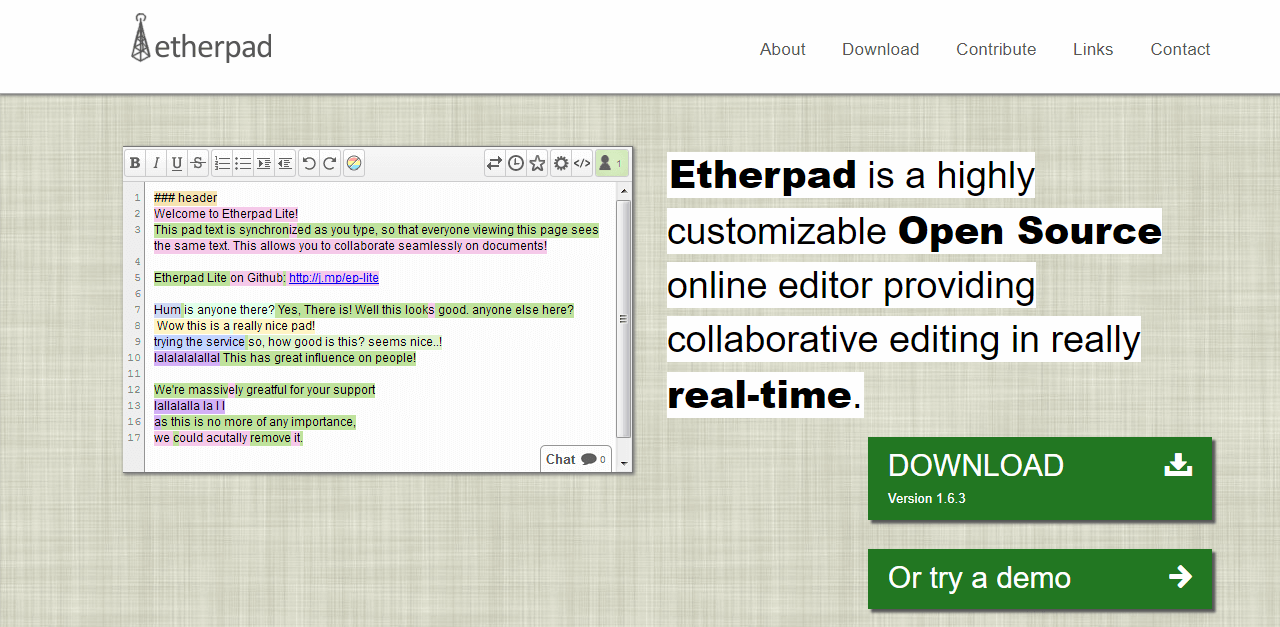
- Etherpad is an open source text editor that allows real-time collaborative editing online. You and your mentor can use this tool for online revision of your thesis.
🧠 Knowledge Management
Here’s the kicker:
While doing research for your dissertation, you will need to dig through an incredible amount of literature. Maybe even look at some free college essays examples.
To make your job easier without getting lost or wasting time, consider the following knowledge management tools — they are great for dissertation help.
- KeepNote is a particularly effective note-taking application that can help you use full-text search and store your findings and notes.
- TomBoy is a free and easy-to-use note-taking and mind-mapping application. When making an analysis of sources or gathering articles in one place, it’s easy to get lost in dozens of links. Tomboy allows you to store every link carefully and have access to them anytime from your desktop.
- TiddlyWiki is a knowledge management app with a number of helpful features of much help for your thesis.
- Mindnote is an effective mind-mapping tool that can help you organize your thoughts intuitively.
- Mendeley is a tool that allows you to create your own easily searchable library of your research findings and accessible from any device.
- VUE stands for Visual Understanding Environment. This tool can be used for structuring and sharing information.
- EyePlorer is a convenient tool for creating charts and mind maps online. You can just drag in your thesis statement’s keywords and get the results.
- Zotero is a valuable academic research and knowledge management tool that combines functionality of a citation maker and knowledge management.
- Endnote can help you find, save, and share the information you need. You can work on a document with your team, see the history of changes, and get your sources cited in one of 6,000 styles.
- Cam scanner is probably one of the easiest ways to save bibliographic information by simply “scanning” a resource with your phone or any other device.
⌚ Student Planners
In being preoccupied with your thesis, you may easily forget something. The following free tools will help you be better organized:
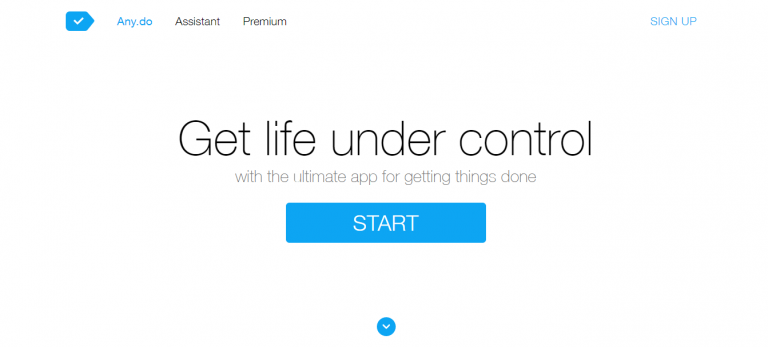
- Any do can synchronize your personal tasks and help you achieve maximum potential.
- Trello can help you see everything about your project in one place.
- Exam Countdown is a free and easy-to-use app to keep track of all your deadlines. Thesis development consists of many parts. Don’t miss any of them with this helpful and vivid tool.
- Wunderlist is a tool for ticking off all your personal and academic goals.
- Todoist is a free online task manager that will kindly remind you of approaching deadlines.
- Tomsplanner is an online chart to help you get things done.
- HabitRPG is a free productivity app that treats your life like an exciting game. Habitica is an RPG game that not only motivates you to start a thesis but also helps with everyday routines like cleaning your room or getting enough sleep.
- Todokyo is a simple way to create to-do lists online.
- Ta-da Lists will help you reach those amazing “ta-da” moments with all your daily and weekly tasks.
🙋 Bibliography Helpers
Collecting resources and formatting citations is important for your dissertation writing, but imagine letting free citation tools do that work for you! Make this academic dream come true with our past list of the top 25 free online best citation generators , or check out the following collection of free tools:
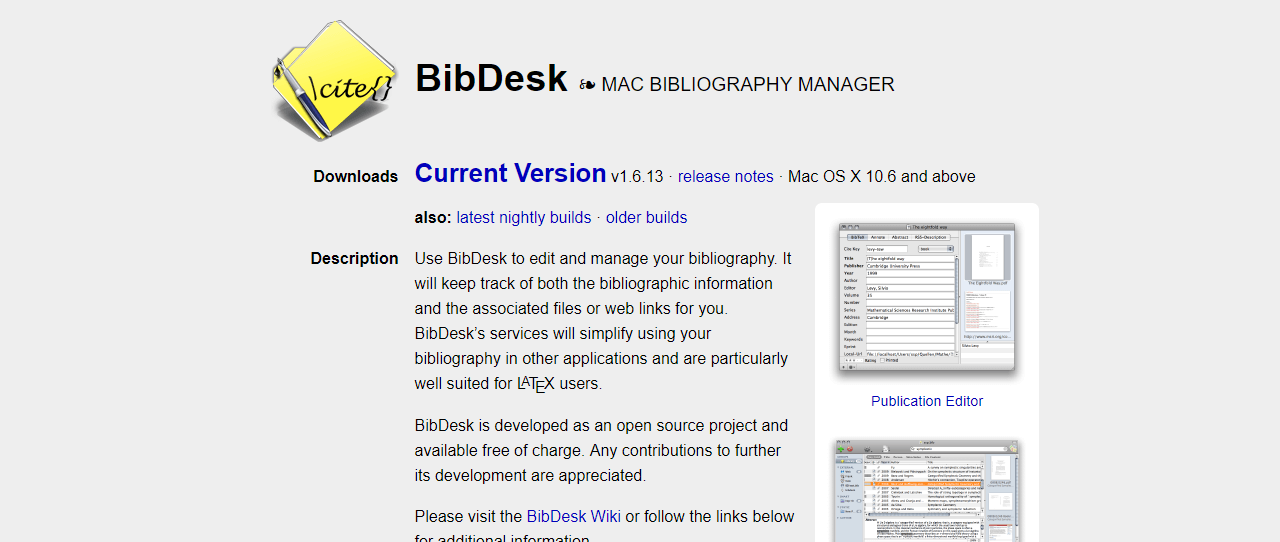
- BibDesk will help you edit and manage your bibliography. This tool can help you keep track of not only bibliographic information but also related links and files.
- BiblioExpress will help you find, manage, and edit bibliographic records.
- Docear is a free academic literature management suite that helps you discover, organize, and cite your resources.
- Recipes4Success is an open source bibliography maker that formats citations in MLA and APA. It works as a rewording generator—you fill in the fields, and the tool gives you a full sentence in one of the most popular citation styles.
- Ottobib is a free, easy, and fast bibliography maker that allows formatting citations using only ISBN. If you use ISBN for your referencing, you can save a lot of time.
- Citavi is a free reference management and knowledge organization tool that can help to not only create citations but also organize and highlight text.
- Cite This for Me is an open source and easy-to-use citation maker that is compatible with a wide range of citation styles.
- GoBiblio is a free online citation maker that generates citations in MLA and APA.
🔬 Academic Research Tools
One more thing you will appreciate is an academic full-text research environment free of commercial links:
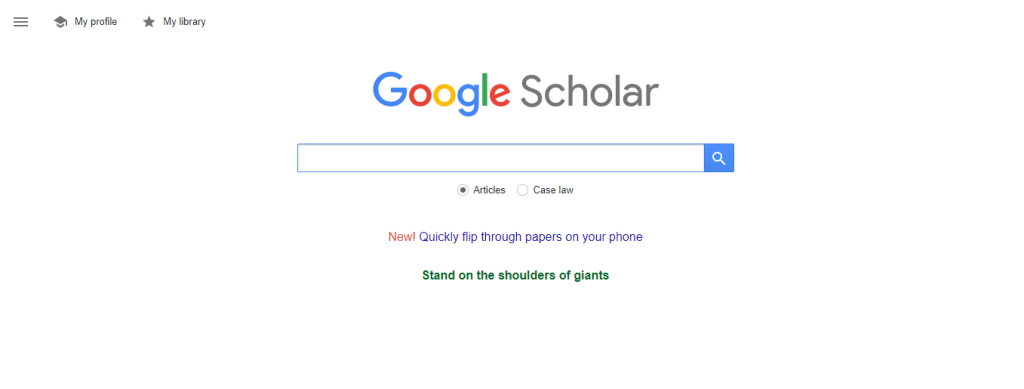
- Google Scholar is the place to start your online research that will help you with your thesis.
- ContentMine is a tool that extracts scientific facts from around a billion academic resources.
- Data Elixir is a twice-monthly digest of the latest scientific discoveries.
- Labii is a template-based electronic notebook. Keep all your data organized into categories like protocols, results, samples, and so on.
- LazyScholar is a free Chrome or Mozilla extension that will do an automatic full-text search and create fast citations.
- Scientific Journal Finder can help you access the latest and most relevant resources in your field.
- Scizzle is a fast and easy way to discover new papers on a topic of your choice.
- MyScienceWork is a platform for making your research papers visible to anyone on the web or getting access to research of others.
- Sparrho is a collection of scientific channels and an easily navigated search engine. It contains more than 60 million scientific articles, and the best universities in the world use it.
Working with sources and doing research may be rather exhausting.
Here’s the deal:
You have to work on your performance and productivity.
🏃♀️ Productivity Apps
Another important routine change that can save hours and days of your life is blocking or minimizing distractions:
- TimeDoctor is an easy to use time-tracking app that will prevent you from distractions and increase your productivity.
- Online timer by TimeCamp is a free and simple solution for measuring your work time divided by separate tasks.
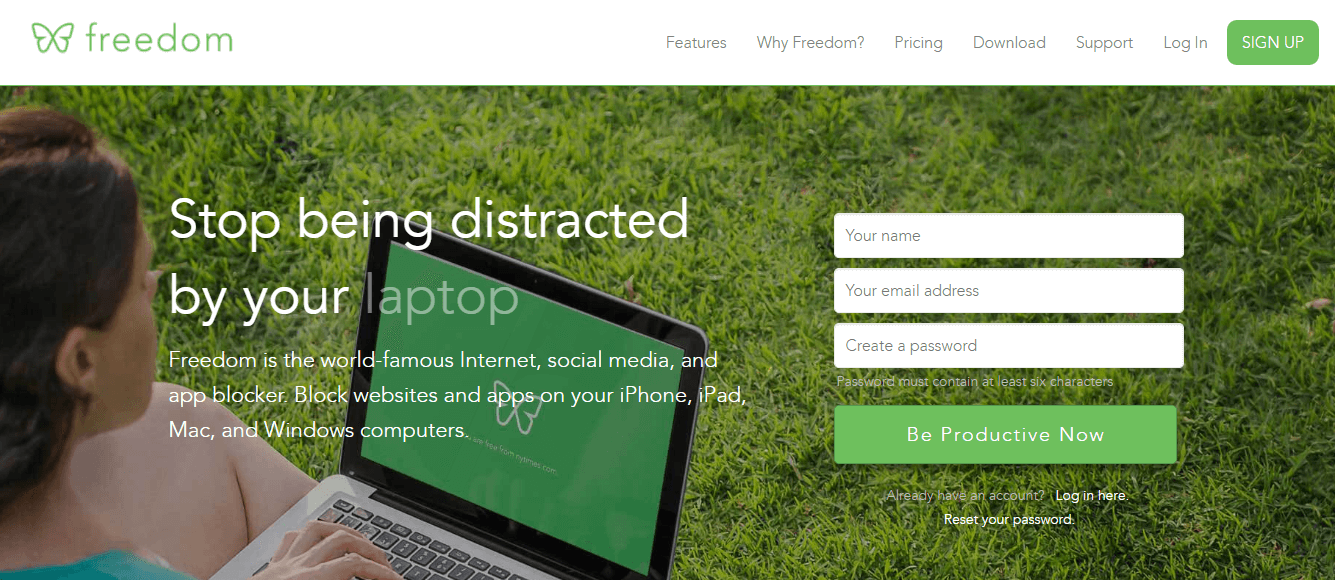
- Freedom can help you block the most distractions
- SelfControl is a Mac app that will help you avoid distracting websites. Just block social media or news feeds that interfere with your work.
- Write or Die is a web-based app designed to boost your productivity by reaching a target word count within a chosen time frame.
- Focus Time is a combination of an activity tracker and a Pomodoro timer.
- Rescue Time promises to help you block all distractions. Control the choice of blocked resources or use the default list.
- Leechblock NG is a Firefox add-on that can block time-wasting sites.
- StayFocusd politely questions if you shouldn’t be working and helps you achieve that.
- Write Monkey is software that can create a distraction-free interface for simply writing.
- Nirvana will help you prioritize your tasks and get the most important ones done on time.
- Tomato Timer is a minimalist timer that will help you work according to the well-known Pomodoro technique (working 25 minutes before taking a 5-minute break).
📖 Vocabulary Builders
By the time you finish your project, you can undoubtedly boast of having a rich and diverse academic vocabulary. You may want to boost your vocabulary even further with the following tools:
- IntensiveVocab is a free tool designed to help you improve your vocabulary, score higher on standardized tests, and thus improve your dissertation’s language.
- WhichWord is an iOS app designed to help you better understand the difference between frequently confused words.
- Just the Word is an online tool to help you better combine words in a sentence. You enter “just the word” into a search line and receive examples of how that word can be used and other students’ errors.
- Lexipedia is a tool that creates semantic differences for a word of your choice. This tool organizes the results in a mind map. It’s available in English, German, French, Spanish, Dutch, and Italian.
- Wordnik is a free tool that will give you several definitions for a word of your choice.
- Wordhippo is an easy and quick way to find synonyms and antonyms for a certain word. You can also find rhymes, scrabble options, words with specific letters, and so on.
- SAT Vocab by MindSnacks is a free app that can help you learn SAT vocabulary and formulate more difficult sentences by simply playing games.
- Vocabulary Builder from Magoosh is a free app to quickly boost your vocabulary.
- Visual Vocab SAT is a free but effective app for building your vocabulary.
📚 Dictionaries
This collection of sources will make you thesis writing process easy and professional.
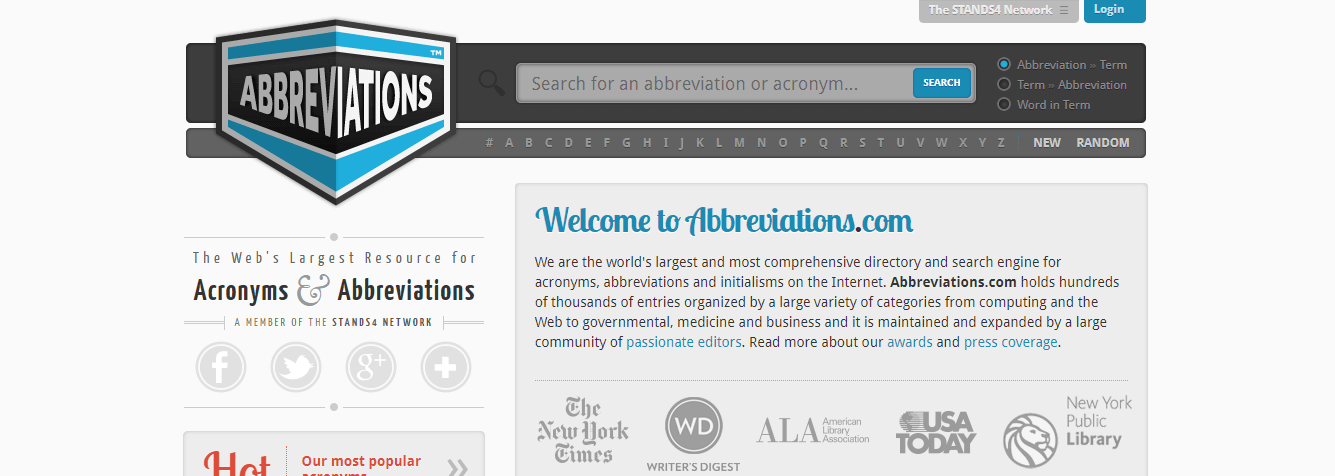
- Abbreviations is a huge directory of all abbreviations imaginable. It’s a vast library of acronyms and abbreviations in various fields like science, medicine, government, business, and more.
- Cambridge Dictionaries is a collection of free online English dictionaries and thesauruses including bilingual and semi-bilingual resources.
- Definitions is a multilingual dictionary that provides definitions from many reputable resources. It knows every word in many narrow fields like trees, dinosaurs, and ancient history.
- Macmillan Dictionary is an open source tool with activities and word lists to not only find the words you need but also learn them.
- Merriam Webster is a free dictionary with a variety of online quizzes and tests. It’s one of the most valuable online dictionaries.
- Thesaurus is an open source dictionary offering synonyms and definitions.
- Urban Dictionary is the go-to place for synonyms and definitions. This is the best place to search for slang words.
- Ozdic is a free online collocation dictionary. You can get a full analysis of a particular word you need to learn.
- YourDictionary provides simple definitions that anyone can understand.
✅ Plagiarism Check
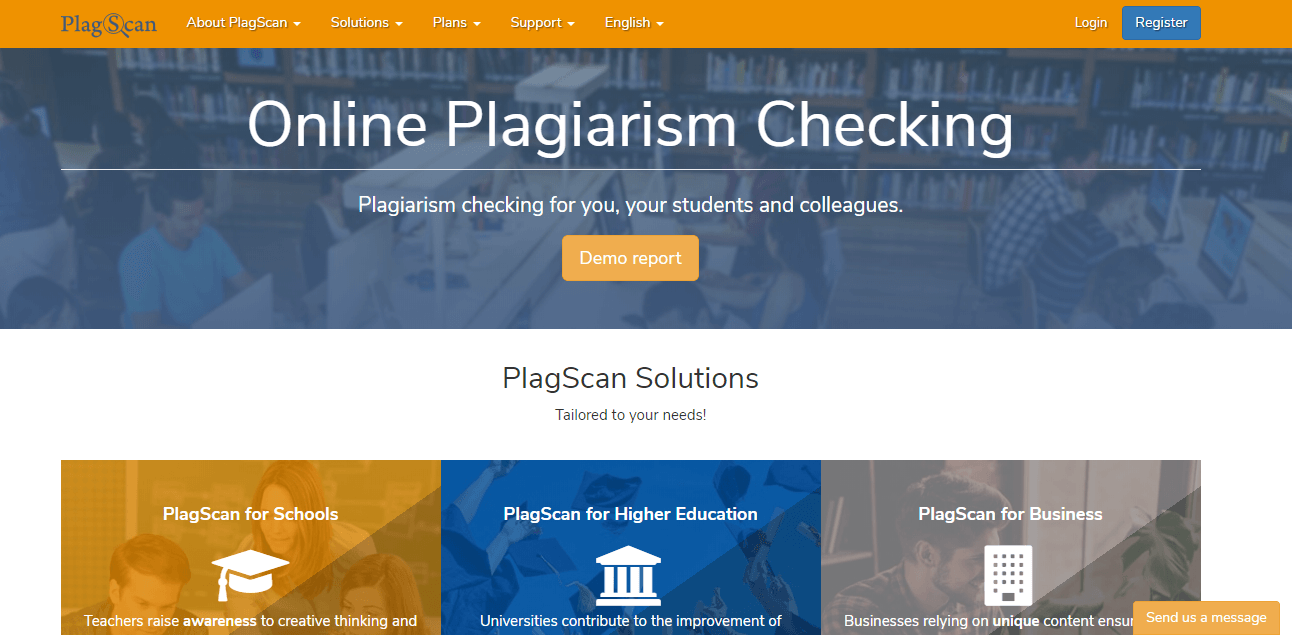
- PlagScan will compare your documents with billions of others.
- Article Checker is a free online plagiarism-checking tool that can search for copies of your text on the web.
- Duplichecker is a free plagiarism detection tool restricted to 1,000 words per search.
- PlagiarismCheck.org generates plagiarism reports and offers an unlimited number of free attempts.
- Plagium is a free, quick search that helps you detect instances of occasional plagiarism in your paper.
- Dustball is a free plagiarism detection tool that will easily find plagiarized parts in your text.
- ThePensters is free plagiarism-checking software for students and beyond. It analyzes the percentage of plagiarized text from web pages. Also, with the help of this tool, you can create a bibliography by ISBN code.
- PlagTracker is a convenient online plagiarism detection tool.
- Plagiarisma is another free online plagiarism checker. It supports about 200 languages, and you can switch between Google and Bing search engines when checking your documents.
- Copyscape will help you scan your thesis for any copies on the web.
✍️ Grammar and Style Check
Grammar and style checking of large amounts of text can last forever if you do it manually. The following free tools will make a world of difference for you:
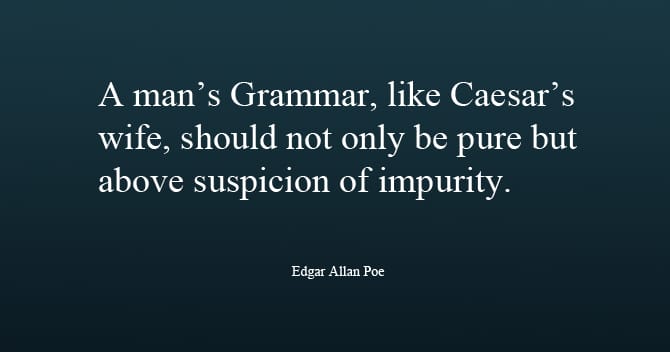
- Ginger is a quick and quality online grammar checker. This is a perfect tool to eliminate misspellings.
- Grammarly with its grammar, style, and plagiarism check is a must-have for students.
- AftertheDeadline is a spell, style, and grammar checker that promises intelligent editing.
- Spellchecker is a spell check solution with a 300-day free trial. Along with grammar mistakes, it shows misused words and syntax errors.
- Online Correction is a tool for detecting style, spelling, and grammar mistakes in writing.
- Spell Check Online is a website for quick spell check online.
- Paper Rater is a free tool that offers online proofreading and does not require download.
- Grammar Check.me is a way to check and correct style, grammar, and spelling of your text online.
- Language Tool is an open source tool for style and grammar check.
Would you like to add some tool to this list? Which free apps and websites help you with your thesis?
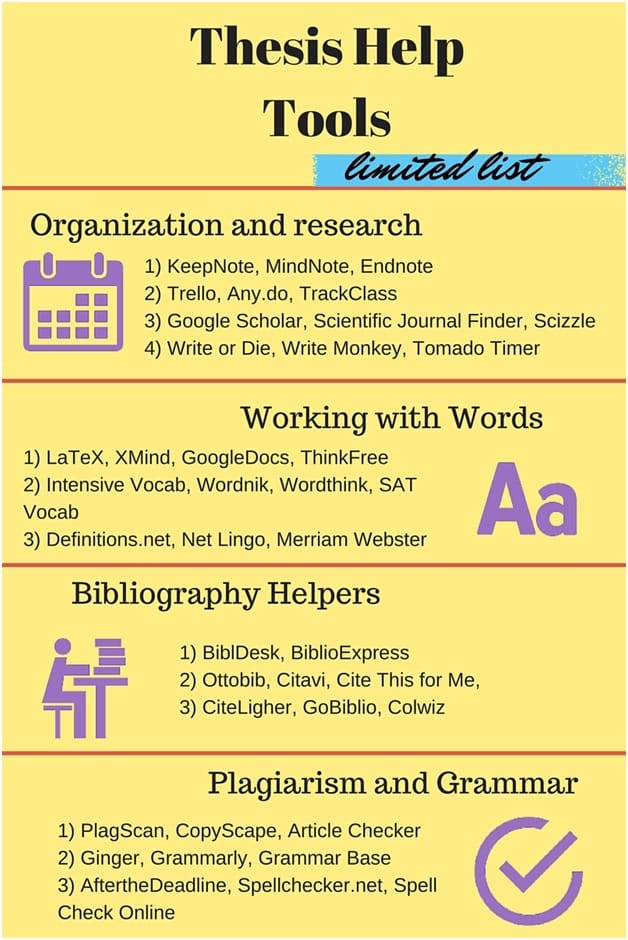
- Share via Facebook
- Share via X
- Share via LinkedIn
- Share via email
By clicking "Post Comment" you agree to IvyPanda’s Privacy Policy and Terms and Conditions . Your posts, along with your name, can be seen by all users.
I got 64 % similarity for my assignment. is it bad or good? if it’s bad please tell me how to fix it?
Thanks for these helpful Tools.
Thanks for the feedback! Much appreciated.
Wow good bro
Thanks for the feedback!
Thanks for the feedback, Abderrahmane!
Hi, I would like to ask you about the thesis for Diploma
Hello! Sure, please do not hesitate to ask our experts ivypanda.com .
I’m glad, your message via Twitter brought me here and I really found your blog so helpful. Cheers!
Thank you for your kind words! 🙂
Wow right time, thanks for such a great article. Helpful.
Melik, I’m glad the article was helpful to you 🙂
If you are going for ‘fancy stuff’ you might mention markdown, rmarkdown/knitr etc. This will replace latex imho.
And if you mention Latex you should mention Overleaf (an online version and a way to learn it).
Overall though, a very interesting list. Do you rate/rank these tools?
Thank you for the feedback, David!
OUTSTANDING!!!
Thank you for putting this together.
Thank you very much, Michele 🙂
Thanks regarding furnishing this kind of well put together content.
Thanks for your feedback, Mandila! Glad you liked it!
That’s an apt answer to an interesting question.
Thanks for stopping by. I hope these tools are really helpful to you. Good luck!
- Executive Committee
- Distinguished Service
- Outstanding Research
- Influential Educator
- Distinguished Paper
- Frank Anger Memorial
- Impact Paper
- Doctoral Dissertation
- Early Career Researcher
Dissertations
- Research Highlights
- Student Assistance
- Improving Paper and Peer Review Quality
- Impact Project
PhD Dissertations in the Area of Software Engineering
This list is provided as a resource for PhD candidates, researchers, scientists, and engineers who are actively pursuing advanced research in Software Engineering.
If you are a PhD graduate, we invite you to submit information about your dissertation using this form . The information you provide will be evaluated by our committee before being added to the list below.
Finally, note that SIGSOFT is making this information available without warranty and assumes no responsibility for its accuracy. All information was provided on a voluntary basis. Any issues of copyright are the sole responsibility of the person submitting the information to SIGSOFT.
Those interested in PhD dissertations in the area of software engineering may also be want to review Tao Xie's Software Engineering Academic Genealogy .
Miguel Olivero . A Framework For Security Assessment Of Systems Of Systems . Universidad de Sevilla (Nov 19, 2020, advisor: Maria José Escalona. Abstract .
Roberto Casadei . Engineering Self-Adaptive Collective Processes for Cyber-Physical Ecosystems . Alma Mater Studiorum - Universitá di Bologna (Feb 4, 2020, advisor: Mirko Viroli). Abstract .
Faiz Ali Shah . Extracting Information from App Reviews to Facilitate Software Development Activities . University of Tartu, Estonia (Feb 21, 2020, advisor: Dietmar Pfahl). Abstract .
Tiago Boldt Sousa . Engineering Software for the Cloud: A Pattern Language . Faculty of Engineering, University of Porto (May 8, 2020, advisor: Hugo Sereno Ferreira). Abstract .
Yannic Noller . Hybrid Differential Software Testing . Humboldt-Universität zu Berlin (Oct 16, 2020, advisor: Lars Grunske). Abstract .
Toni Taipalus . Persistent Errors in Query Formulation . University of Jyvaskyla (Nov 29, 2020, advisor: Mikko Siponen). Abstract .
Théo Zimmermann . Challenges in the collaborative evolution of a proof language and its ecosystem . Université de Paris (December 12, 2019, advisor: Hugo Herbelin). Abstract .
Tushar Sharma . Extending Maintainability Analysis Beyond Code Smells . Athens University of Economics and Business (May 2, 2019, advisor: Diomidis Spinellis). Abstract .
Christian Macho . Preventing and Repairing Build Breakage . University of Klagenfurt (May 8, 2019, advisor: Martin Pinzger). Abstract .
Akond Rahman . Anti-patterns in Infrastructure as Code . North Carolina State University (Jun 13, 2019, advisor: Laurie Williams). Abstract .
Denae Ford . Identity-Based Signals and E-Mentorship to Support Engagement in Online Programming Communities . North Carolina State University (Jul 30, 2019, advisor: Christopher Parnin). Abstract .
Sebastian Baltes . Software Developers' Work Habits and Expertise: Empirical Studies on Sketching, Code Plagiarism, and Expertise Development . University of Trier (Oct 4, 2019, advisor: Stephan Diehl). Abstract .
Huishi Yin . Using a Kano-like Model to Facilitate Open Innovation in Requirements Engineering . University of Tartu, Estonia (Dec 17, 2019, advisor: Dietmar Pfahl). Abstract .
Martina De Sanctis . Dynamic Adaptation of Service-Based Systems: a Design for Adaptation Framework . University of Trento (May 152018, advisor: Marco Pistore). Abstract .
Chaiyong Ragkhitwetsagul . Code similarity and clone search in large-scale source code data . University College London, United Kingdom (Oct 10, 2018, advisor: Jens Krinke). Abstract .
Thomas Vogel . Model-Driven Engineering of Self-Adaptive Software . Hasso Plattner Institute, University of Potsdam, Germany (Mar 19, 2018, advisor: Holger Giese ). Abstract .
Siba Mishra . Efficient Cost Estimation And Testing Approaches For Soa Systems . Indian Institute of Technology (Indian School of Mines) Dhanbad (Mar 23, 2018, advisor: Prof. Chiranjeev Kumar ). Abstract .
Titus Barik . Error Messages As Rational Reconstructions . North Carolina State University (Mar 29, 2018, advisor: Emerson Murphy-Hill ). Abstract .
Austin Henley . Human-Centric Tools For Navigating Code . University of Memphis (Aug 11 2018, advisor: Scott Fleming ). Abstract .
Xavier Devroey . Behavioural model-based testing of software product lines . University of Namur (Aug 30 2017, advisor: Pierre-Yves Schobbens and Patrick Heymans ). Abstract .
Sridhar Chimalakonda . A Software Engineering Approach For Design Of Educational Technologies . International Institute of Information Technology Hyderabad (Feb 3 2017, advisor: Kesav V. Nori ). Abstract .
Amin Milani Fard . Directed test generation and analysis for web applications . University of British Columbia (Jan 27 2017, advisor: Ali Mesbah ). Abstract .
Asim Abdulkhaleq . A System-Theoretic Safety Engineering Approach For Software-Intensive Systems . University of Stuttgart, Institute of Software Technology (Jun 2, 2017, advisor: Stefan Wagner ). Abstract .
Sami Alajrami . Software Development In The Post-Pc Era: Towards Software Development As A Service . Newcastle University (May 4, 2017, advisor: Alexander Romanovsky ). Abstract .
Catarina Costa . Recommending Developers For Collaborative Merge Sessions . Fluminense Federal University (Jun 28, 2017, advisor: Leonardo Gresta Paulino Murta ). Abstract .
Ahmad Nauman Ghazi . Structuring Exploratory Testing Through Test Charter Design And Decision Support . Blekinge Institute of Technology, Sweden (Jun 1, 2017, advisor: Kai Petersen ). Abstract .
Fabio Palomba . Code Smells: Relevance Of The Problem And Novel Detection Techniques . University of Salerno (Apr 20, 2017, advisor: Andrea De Lucia ). Abstract .
Alireza Rouhi . Presenting A Process For Generating A Pattern Language Verifier . University of Isfahan (Sep 2, 2017, advisor: Bahman Zamani ). Abstract .
Jonas Westman . Specifying Safety-Critical Heterogeneous Systems Using Contracts Theory . ITM/Machine Design (Feb 22, 2017, advisor: Mattias Nyberg ). Abstract .
Andrea Stocco . Automatic Page Object Generation To Support E2E Testing Of Web Applications . University of Genoa, Italy (Apr 12, 2017, advisor: Filippo Ricca ). Abstract .
Jean Melo . Variability Bugs: Program And Programmer Perspective . IT University of Copenhagen (Aug 31, 2017, advisor: Claus Brabrand ). Abstract .
Rubén Saborido . Assisting Developers And Users In Developing And Choosing Efficient Mobile Device Apps . École Polytechnique de Montréal (December 7, 2017, advisor: Foutse Khomh ). Abstract .
Santosh Singh Rathore . Predicting Number Of Faults In Software Systems . Indian Institute of Technology Roorkee (Sep 2017, advisor: Dr. Sandeep Kumar ). Abstract .
Kuldeep Kumar . Formalization and Detection of Collaborative Patterns in Software . National University of Singapore (NUS), Singapore (Jan 31, 2016, advisor: Stanislaw Jarzabek). Abstract .
Michail Famelis . Managing Design-Time Uncertainty In Software Models . University of Toronto (Jan 15, 2016, advisor: Marsha Chechik ). Abstract .
Ahmad Jbara . Regularity Of Code: A New Structural Property And Its Effect On Code Complexity And Comprehension . Hebrew University (Jul 2016, advisor: Dror Feitelson ). Abstract .
Jan Kurs . Parsing For Agile Modeling . University of Bern (Oct 25, 2016, advisor: Oscar Nierstrasz ). Abstract .
Breno Miranda . Redefining And Evaluating Coverage Criteria Based On The Testing Scope . University of Pisa (Oct 6, 2016, advisor: Antonia Bertolino ). Abstract .
Andrea Caracciolo . A Unified Approach To Architecture Conformance Checking . University of Bern (Mar 2016, advisor: Oscar Nierstrasz ). Abstract .
Niko Mäkitalo . On Programmable Interactions: Principles, Concepts And Challenges Of Co-Located And Social Interplay . Tampere University of Technology (Jun 15, 2016, advisor: Tommi Mikkonen ). Abstract .
Saurabh Tiwari . Evaluating Usability Aspects Of Use Cases For Software Specification Problems . Indian Institute of Information Technology, Design and Manufacturing, Jabalpur, India (June 29, 2016, advisor: Dr Atul Gupta ). Abstract .
Mohamed Wiem Mkaouer . Balancing Competing Needs Of Machine And Human In Search-Based Software Refactoring . University of Michigan-Dearborn (April 4, 2016, advisor: Marouane Kessentini ). Abstract .
Nariman Mirzaei . Automated Input Generation For Testing Android Applications . George Mason University (Jun 6, 2016, advisor: Sam Malek ). Abstract .
Maria Christakis . Narrowing the Gap between Verification and Systematic Testing . ETH Zurich (Sep 21 2015, advisor: Peter Muller ). Abstract .
Yepang Liu . Automated Analysis of Energy Efficiency and Execution Performance for Mobile Applications . The Hong Kong University of Science and Technology (Nov 20 2015, advisor: Shing-Chi Cheung ). Abstract .
Markus Borg . From Bugs to Decision Support - Leveraging Historical Issue Reports in Software Evolution . Lund University (May 8, 2015, advisor: Per Runeson ). Abstract .
Marcelo Schots de Oliveira . On The Use Of Visualization For Supporting Software Reuse . Federal University of Rio de Janeiro (Dec 15, 2015, advisor: Cláudia Maria Lima Werner ). Abstract .
Nauman bin Ali . Operationalization Of Lean Thinking Through Value Stream Mapping With Simulation And Flow . Blekinge Institute of Technology (Jun 5, 2015, advisor: Claes Wohlin ). Abstract .
Phu H. Nguyen . Model-Driven Security With Modularity And Reusability For Engineering Secure Software Systems . University of Luxembourg (Sep 10, 2015, advisor: Yves Le Traon ). Abstract .
Gustavo Pinto . A Refactoring Approach To Improve Energy Consumption Of Parallel Software Systems . UFPE (Feb 24, 2015, advisor: Fernando José Castor de Lima Filho ). Abstract .
Anas Shatnawi . Supporting Reuse By Reverse Engineering Software Architecture And Component From Object-Oriented Product Variants And Apis . LIRMM/University of Montpellier (Jun 29, 2015, advisor: Abdelhak Djamel Seriai ). Abstract .
Rodrigo Souza . Inappropriate Software Changes: Rejection And Rework . Federal University of Bahia (UFBA) (Jul 17, 2015, advisor: Christina von Flach Garcia Chavez ). Abstract .
Mohd Hafeez Osman . Interactive Scalable Condensation Of Reverse Engineered Uml Class Diagrams For Software Comprehension . Leiden University (March 10, 2015, advisor: Michel R.V. Chaudron ). Abstract .
Igor Steinmacher . Supporting Newcomers To Overcome The Barriers To Contribute To Open Source Projects . University of São Paulo (February 26, 2015, advisor: Igor Steinmacher ). Abstract .
Ivan Machado . Fault model-based variability testing . Federal University of Bahia (Jul 21 2014, advisor: Eduardo Santana de Almeida ). Abstract .
Xusheng Xiao . Cooperative Testing and Analysis via Informed Decision Making . North Carolina State University (Jun 13 2014, advisor: Tao Xie and Laurie Williams). Abstract .
Muddassar Sindhu . Algorithms and Tools for Learning-based Testing of Reactive Systems . Royal Institute of Technology (KTH), Stockholm, Sweden (Apr 16, 2013, advisor: Karl Meinke). Abstract .
Joshua Sunshine . Protocol Programmability . Carnegie Mellon University (Dec 2013, advisor: Jonathan Aldrich ). Abstract .
Jeff Huang . Effective Methods for Debugging Concurrent Software . Hong Kong University of Science and Technology (May 31 2013, advisor: Charles Zhang ). Abstract .
Baishakhi Ray . Analysis of Cross-System Porting and Porting Errors in Software Projects . University of Texas at Austin (Aug 19 2013, advisor: Miryung Kim ). Abstract .
Tristan Ravitch . Inferred Interface Glue: Supporting Language Interoperability with Static Analysis . University of Wisconsin-Madison (Aug 20 2013, advisor: Ben Liblit ). Abstract .
Kathryn Stolee . Solving the Search for Source Code . University of Nebraska-Lincoln (Jan 1 2013, advisor: Sebastian Elbaum ). Abstract .
Norbert Siegmund . Measuring and Predicting Non-Functional Properties of Customizable Programs . University of Magdeburg (Nov 27 2012, advisor: Gunter Saake ). Abstract .
Janet Siegmund . Framework for Measuring Program Comprehension . University of Magdeburg (Nov 27 2012, advisor: Gunter Saake ). Abstract .
Kai Pan . Constraint-based generation of database states for testing database applications . University of North Carolina at Charlotte (Dec 2012, advisor: Xintao Wu ). Abstract .
Domenico Bianculli . Open-world software: Specification, verification, and beyond . Università della Svizzera italiana (Jul 18 2012, advisor: Carlo Ghezzi ). Abstract .
Taneja Kunal . Quality Assurance of Database Centric Applications . North Carolina State University (Nov 7 2012, advisor: Tao Xie ). Abstract .
Iman Saleh . The Formal Specification and Verification of Data-Centric Web Services . Virginia Tech (Feb 10 2012, advisor: Gregory W. Kulczycki ). Abstract .
Michael Würsch . A Query Framework for Software Evolution Data . University of Zurich (Sep 2012, advisor: Harald C. Gall ). Abstract .
Michael Pradel . Program Analyses for Automatic and Precise Error Detection . ETH Zurich, Department of Computer Science (Dec 2012, advisor: Thomas R. Gross ). Abstract .
Cindy Rubio González . Finding Error-Propagation Bugs in Large Software Systems Using Static Analysis . University of Wisconsin Madison (Aug 2012, advisor: Ben Liblit ). Abstract .
Piramanayagam Arumuga Nainar . Applications of Static Analysis and Program Structure in Statistical Debugging . University of Wisconsin - Madison (Aug 24 2012, advisor: Ben Liblit ). Abstract .
Aldeida Aleti . An Adaptive Approach to Controlling Parameters of Evolutionary Algorithms . Swinburne University of Technology (Jul 23 2012, advisor: Lars Grunske ). Abstract .
Pamela Bhattacharya . Quantitative decision-making in software engineering . University of California, Riverside (Jun 15 2012, advisor: Iulian Neamtiu ). Abstract .
Matthias Hert . RDF-based Read and Write Access to Relational Databases . University of Zurich (Apr 2012, advisor: Harald C. Gall ). Abstract .
Ekwa Duala-Ekoko . Using Structure-Based Recommendations to Facilitate API Learnability . McGill University (May 2012, advisor: Martin Robillard ). Abstract .
Indika Meedeniya . Architecture Optimisation of Embedded Systems under Uncertainty in Probabilistic Reliability Evaluation Model Parameters . Swinburne University of Technology (Jul 17 2012, advisor: Lars Grunske and Irene Moser). Abstract .
Mark Gabel . Inferring Programmer Intent and Related Errors from Software . University of California at Davis (Sep 2011, advisor: Zhendong Su ). Abstract .
Eugene Syriani . A Multi-Paradigm Foundation for Model Transformation Language Engineering . McGill University (Feb 4 2011, advisor: Hans Vangheluwe ). Abstract .
Mohammad AL Asswad . Semantic Information Systems Engineering: A Query-based Approach for Semi-automatic Annotation of Web Services . Brunel University (Jul 19 2011, advisor: Mark Lycett ). Abstract .
Catia Trubiani . Automated generation of architectural feedback from software performance analysis results . University of L'Aquila (Apr 18 2011, advisor: Vittorio Cortellessa ). Abstract .
Amine Chigani . Campus Situational Awareness and Emergency Response Management System . Virginia Polytechnic Institute & State University (May 14 2011, advisor: Osman Balci ). Abstract .
Anne Koziolek . Automated Improvement of Software Architecture Models for Performance and Other Quality Attributes . Karlsruhe Institute of Technology (Jul 14 2011, advisor: Ralf Reussner ). Abstract .
Ridi Ferdiana . An extreme programming approach for global software development . Universitas Gadjah Mada (Oct 26 2011, advisor: Lukito Edi Nughroho and Paulus Insap Santosa and Ahmad Ashari). Abstract .
Yi Huang . Contract-based Synchronization of Multi-threaded Java Programs . Michigan State University (Dec 16 2011, advisor: Laura Dillon ). Abstract .
Rahul Purandare . Exploiting Program and Property Structure for Efficient Runtime Monitoring . University of Nebraska (May 6 2011, advisor: Matthew B. Dwyer ). Abstract .
Jiangfan Shi . Use of constraint solving for testing software product lines . University of Nebraska (Dec 2011, advisor: Matthew B. Dwyer and Myra B. Cohen). Abstract .
Neil Harrison . Improving quality attributes of software systems through software architecture patterns . University of Groningen (Apr 18 2011, advisor: Paris Avgeriou ). Abstract .
Trosky Boris Callo Arias . Execution architecture views for evolving software-intensive systems . University of Groningen (Jun 17 2011, advisor: Paris Avgeriou and Pierre America). Abstract .
Philip Langer . Adaptable Model Versioning based on Model Transformation By Demonstration . Vienna University of Technology (Dec 21 2011, advisor: Gerti Kappel ). Abstract .
Klaas-Jan Stol . Supporting Product Development with Software from the Bazaar . University of Limerick (Dec 1 2011, advisor: Muhammad Ali Babar and Paris Avgeriou and Brian Fitzgerald). Abstract .
Ziyad Alshaikh . Notes on the Synthesis of Context: a novel approach to model context in software engineering . Australian National University (Feb 2011, advisor: Clive Boughton ). Abstract .
Kiev Gama . Towards Dependable Dynamic Component-based Application . Universite de Grenoble (Oct 6 2011, advisor: Didier Donsez ). Abstract .
Arif Raza . A Usability Maturity Model for Open Source Software . University of Western Ontario (Jun 15 2011, advisor: Luiz Fernando Capretz ). Abstract .
Hugo Sereno Ferreira . Adaptive Object-Modeling: Patterns, Tools and Applications . University of Porto, Faculty of Engineering (May 27 2011, advisor: Ademar Aguiar ). Abstract .
Varun Gupta . Object-Oriented Static and Dynamic Software Metrics for Design and Complexity . National Institute of Technology, Kurukshetra, India (Mar 31 2011, advisor: Jitender Kumar Chhabra ). Abstract .
Soo Ling Lim . Social Networks and Collaborative Filtering for Large-Scale Requirements Elicitation . University of New South Wales (Feb 3 2011, advisor: Anthony Finkelstein ). Abstract .
William Tribbey . Construction and analysis of vector space models for use in aspect mining . Nova Southeastern University (Apr 2011, advisor: Frank Mitropoulos ). Abstract .
Andrew Forward . The Convergence of Modeling and Programming: Facilitating the Representation of Attributes and Associations in the Umple Model-Oriented Programming Language . University of Ottawa (Oct 25 2010, advisor: Timothy C. Lethbridge ). Abstract .
Paul Ralph . Fundamentals of Software Design Science . University of British Columbia (Oct 2010, advisor: Yair Wand ). Abstract .
Antonio Miguel Rosado da Cruz . Automatic Generation of User Interfaces from Rigorous Domain and Use Case Models . Universidade do Porto (Sep 17 2010, advisor: Joao Pascoal Faria ). Abstract .
Vinicius Garcia . RiSE Reference Model for Software Reuse Adoption in Brazilian Companies . Federal University of Pernambuco (Feb 26 2010, advisor: Silvio Romero de Lemos Meira and Eduardo Santana de Almeida). Abstract .
Foutse Khomh . Patterns and Quality of Object-oriented Software Systems . University of Montreal (Aug 31 2010, advisor: Yann-Gael Gueheneuc ). Abstract .
Marco D'Ambros . On the Evolution of Source Code and Software Defects . University of Lugano (Oct 19 2010, advisor: Michele Lanza ). Abstract .
Suresh Thummalapenta . Improving Software Productivity and Quality via Mining Source Code . North Carolina State University (Nov 23 2010, advisor: Tao Xie ). Abstract .
Juncao Li . An Automata-Theoretic Approach to Hardware/Software Co-verification . Portland State University (Dec 10 2010, advisor: Fei Xie ). Abstract .
Paolo Di Benedetto . A Framework For Context Aware Adaptable Software Applications And Services . Università degli Studi di L'Aquila (Jul 9 2010, advisor: Paola Inverardi ). Abstract .
Toby Myers . The Foundations for a Scaleable Methodology for Systems Design . Griffith University (Nov 26 2010, advisor: R. Geoff Dromey ). Abstract .
Lukas Renggli . Dynamic Language Embedding With Homogeneous Tool Support . University of Bern (Oct 20 2010, advisor: Oscar Nierstrasz ). Abstract .
Rubén Mondéjar . Distributed AOP Middleware for Large-Scale Scenarios . Universitat Rovira i Virgili (Apr 29 2010, advisor: Pedro García-López ). Abstract .
David Röthlisberger . Augmenting IDEs with Runtime Information for Software Maintenance . University of Bern (Jun 4 2010, advisor: Oscar Nierstrasz ). Abstract .
Rangaswamy Selvarani . Design Quality Metrics in Object Oriented Software System . Jawaharlal Nehru Technological University, Hyderabad (Feb 8 2010, advisor: T.R. Gopalakrishnan Nair ). Abstract .
Bonita Sharif . Empirical Assessment of UML Class Diagram Layouts based on Architectural Importance . Kent State University (May 13 2010, advisor: Jonathan I. Maletic ). Abstract .
Michel dos Santos Soares . Architecture-Driven Integration of Modeling Languages for the Design of Software-Intensive Systems . Delft University of Technology (Feb 2010, advisor: Alexander Verbraeck ). Abstract .
Angshu Maan Sen . Multiple Perspectives of Elicitation of Requirements in Goal Oriented Requirements Engineering: An Agile Technique of Elicitation . Assam University, Silchar (May 13 2010, advisor: K. Hemachandran ). Abstract .
Patricia Deshane . Managing the Copy-and-Paste Programming Practice . Clarkson University (Apr 30, 2010, advisor: Daqing Hou ). Abstract .
Christian Murphy . Metamorphic Testing Techniques to Detect Defects in Applications without Test Oracles . Columbia University (May 2010, advisor: Gail Kaiser ). Abstract .
Remco de Boer . Architectural Knowledge Management: Supporting Architects and Auditors . VU University Amsterdam (Oct 5 2009, advisor: Hans van Vliet and Patricia Lago). Abstract .
Laura-Cecilia Rodriguez-Martinez . Design and Evaluation of a Software Systems Life Cycle Process Model in the Service-oriented Software Engineering Paradigm . Autonomous University of Aguascalientes (Nov 12 2009, advisor: Manuel Mora ). Abstract .
Angela Lozano . Assessing the effect of source code characteristics on changeability . Open University (Dec 17 2009, advisor: Michel Wermelinger and Bashar Nuseibeh). Abstract .
Mircea Lungu . Reverse Engineering Software Ecosystems . University of Lugano (Oct 2009, advisor: Michele Lanza ). Abstract .
Jochen Quante . Dynamic Object Process Graphs . University of Bremen, Germany (Jan 30, 2009, advisor: Rainer Koschke ). Abstract .
Rui Abreu . Spectrum-based Fault Localization in Embedded Software . Delft University of Technology (2009, advisor: Arjan van Gemund ). Abstract .
Bruno Cabral . A Transactional Model for Automatic Exception Handling . University of Coimbra (Nov 26 2009, advisor: Paulo Marques ). Abstract .
Mohammad Raunak . Resource Management In Complex and Dynamic Environments . University of Massachusetts Amherst (Sep 2009, advisor: Leon J. Osterweil ). Abstract .
Joerg Rech . Context-sensitive Diagnosis of Quality Defects in Object-oriented Software Systems . University of Hildesheim (2009, advisor: Klaus-Dieter Althoff ). Abstract .
Yingfei Xiong . A Language-based Approach to Model Synchronization in Software Engineering . The University of Tokyo (Sep 2009, advisor: Zhenjiang Hu and Masato Takeichi). Abstract .
Justin Erenkrantz . Computational REST: A New Model for Decentralized, Internet-Scale Applications . University of California, Irvine (Sep 2009, advisor: Richard N. Taylor ). Abstract .
Donna Malayeri . Coding Without Your Crystal Ball: Unanticipated Object-Oriented Reuse . Carnegie Mellon University (Dec 2009, advisor: Jonathan Aldrich ). Abstract .
Georgios Gousios . Tools and Methods for Large Scale Software Engineering Research . Athens University of Economics and Business (Apr 7 2009, advisor: Diomidis Spinellis ). Abstract .
Eduardo Figueiredo . Concern-Oriented Heuristic Assessment of Design Stability . Lancaster University (Oct 23 2009, advisor: Jon Whittle and Alessandro Garcia). Abstract .
Lingxiao Jiang . Scalable Detection of Similar Code: Techniques and Applications . University of California, Davis (2009, advisor: Zhendong Su ). Abstract .
Travis Breaux . Legal Requirements Acquisition for the Specification of Legally Compliant Information Systems . North Carolina State University (Apr 2009, advisor: Annie Anton ). Abstract .
Eric Bodden . Verifying finite-state properties of large-scale programs . McGill University (Dec 28 2009, advisor: Laurie Hendren ). Abstract .
Sayyed Maisikeli . Aspect Mining Using Self-Organizing Maps With Method Level Dynamic Software Metrics as Input Vectors . Nova Southeastern University (Jun 2009, advisor: Frank Mitropoulos ). Abstract .
Adam Kiezun . Effective Software Testing with a String-Constraint Solver . MIT (2009, advisor: Michael D. Ernst ). Abstract .
Dennis Jeffrey . Dynamic State Alteration Techniques for Automatically Locating Software Errors . The University of California, Riverside (Aug 2009, advisor: Rajiv Gupta ). Abstract .
Chanchal Roy . Detection and Analysis of Near-Miss Software Clones . Queen's University at Kingston (Aug 31 2009, advisor: James R. Cordy ). Abstract .
Roberto Silva Filho . An Empirical Study of Publish/Subscribe Middleware Versatility . University of California, Irvine (Aug 2009, advisor: David F. Redmiles ). Abstract .
Suzette Person . Differential Symbolic Execution . University of Nebraska - Lincoln (Aug 2009, advisor: Matthew B. Dwyer ). Abstract .
Eugen Nistor . Concern-Driven Software Evolution . University of California, Irvine (2009, advisor: Andre van der Hoek ). Abstract .
Maria Karen Cortes-Verdin . AOPLA: Aspect-Oriented Product Line Architecture . CIMAT A.C. (Center for Research in Mathematics), Mexico (Jun 5 2009, advisor: Cuauhtemoc Lemus Olalde ). Abstract .
Kevin Bierhoff . API Protocol Compliance in Object-Oriented Software . Carnegie Mellon University (May 17 2009, advisor: Jonathan Aldrich ). Abstract .
Abbas Heydarnoori . Supporting Framework Use via Automatically Extracted Concept-Implementation Templates . University of Waterloo (Apr 27 2009, advisor: Krzysztof Czarnecki ). Abstract .
Mithun Acharya . Mining API Specifications from Source Code for Improving Software Reliability . North Carolina State University (Apr 27 2009, advisor: Tao Xie ). Abstract .
Khanh Hoa Dam . Supporting Software Evolution in Agent Systems . RMIT University (Mar 4 2009, advisor: Michael Winikoff and Lin Padgham). Abstract .
Nelio Cacho . Supporting Maintainable Exception Handling with Explicit Exception Channels . Lancaster University (Jan 15 2009, advisor: Alessandro Garcia ). Abstract .
Anton Jansen . Architectural design decisions . University of Groningen (Sep 19 2008, advisor: Jan Bosch and Dieter Hammer and Paris Avgeriou). Abstract .
Thomas Zimmermann . Changes and Bugs Mining and Predicting Development Activities . Saarland University (May 26 2008, advisor: Andreas Zeller ). Abstract .
Chithralekha Thanasekaran . Agents with Two-Dimensional Language Autonomy for Task Delegation . Pondicherry University (Aug 12 2008, advisor: S. Kuppuswami ). Abstract .
Lukasz Radlinski . Improved Software Project Risk Assessment Using Bayesian Nets . Queen Mary, University of London (Nov 30 2008, advisor: Norman Fenton ). Abstract .
Till Bay . Hosting distributed software projects: concepts, framework, and the Origo experience . ETH Zurich (Jan 16 2008, advisor: Bertrand Meyer ). Abstract .
Venkatasamy Prasanna Venkatesan . ARMMS- AN Architectural Reference Model for Multilingual Software . Pondicherry University (Aug 12 2008, advisor: S. Kuppuswami ). Abstract .
Oksana Tkachuk . Domain-Specific Environment Generation for Modular Software Model Checking . Kansas State University (Dec 12 2008, advisor: Matthew B. Dwyer ). Abstract .
Israel Herraiz . A statistical examination of the properties and evolution of libre software . Universidad Rey Juan Carlos (Oct 2008, advisor: Jesus M. Gonzalez Barahona and Gregorio Robles). Abstract .
Marc Fisher II . Probing Analysis of Closed Components . University of Nebraska - Lincoln (Aug 2008, advisor: Gregg Rothermel and Sebastian Elbaum). Abstract .
Marco Autili . Synthesis Of Distributed Adaptors To Enforce Temporal Properties Specified Through Graphical Scenarios . Universit� degli Studi dell'Aquila (Apr 2008, advisor: Paola Inverardi ). Abstract .
Romain Robbes . Of Change and Software . University of Lugano (Jan 12 2008, advisor: Michele Lanza ). Abstract .
Miryung Kim . Analyzing and Inferring the Structure of Code Changes . University of Washington (2008, advisor: David Notkin ). Abstract .
Atul Gupta . Unit Testing of Object-Oriented Programs . IIT Kanpur, INDIA (Mar 17 2008, advisor: Dr. Pankaj Jalote ). Abstract .
Haroon Tarawneh . A Proposed Software Process Framework for Internet Development in Small Software Firms . The Arab Academy for Banking and Financial Sciences (2008, advisor: Asim El Sheikh ). Abstract .
Adrian Lienhard . Dynamic Object Flow Analysis . University of Bern, Switzerland (Dec 16 2008, advisor: Oscar Nierstrasz ). Abstract .
Claudio Sant'Anna . On the Modularity of Aspect-Oriented Design: A Concern-Driven Measurement Approach . Pontifical Catholic University of Rio de Janeiro (PUC-Rio) (Apr 2008, advisor: Carlos Lucena and Alessandro Garcia). Abstract .
Faizan Javed . Techniques for Context-Free Grammar Induction and Applications . University of Alabama at Birmingham (May 3 2008, advisor: Barrett R. Bryant ). Abstract .
Beat Fluri . Change Distilling - Enriching software evolution analysis with fine-grained source code change histories . University of Zurich (Oct 2008, advisor: Harald C. Gall ). Abstract .
Suman Roychoudhury . Genaweave: A Generic Aspect Weaver Framework Based On Model-Driven Program Transformation . University of Alabama at Birmingham (Aug 9 2008, advisor: Jeff Gray ). Abstract .
Sebastian Gonzalez . Programming in Ambience: Gearing Up for Dynamic Adaptation to Context . Universit� catholique de Louvain (Oct 24 2008, advisor: Prof. Kim Mens ). Abstract .
Annabella Loconsole . Definition and validation of requirements management measures . Ume� University (Jan 25 2008, advisor: Jurgen Borstler ). Abstract .
Bram Adams . Co-Evolution of Source Code and the Build System: Impact on the Introduction of AOSD in Legacy Systems . Ghent University (May 15 2008, advisor: Herman Tromp ). Abstract .
Tom Van Custem . Ambient References: Object Designation in Mobile ad hoc Networks . Vrije Universiteit Brussel (May 23 2008, advisor: Wolfgang De Meuter ). Abstract .
K.C. Shashidhar . Efficient Automatic Verification of Loop and Data-flow Transformations by Functional Equivalence Checking . Katholieke Universiteit Leuven (May 23 2008, advisor: Maurice Bruynooghe and Francky Catthoor). Abstract .
Christoph Csallner . Combining over- and under-approximating program analyses for automatic software testing . Georgia Tech (Aug 1 2008, advisor: Yannis Smaragdakis ). Abstract .
Michal Antkiewicz . Framework-Specific Modeling Languages . University of Waterloo (Sep 12 2008, advisor: Krzysztof Czarnecki ). Abstract .
Dennis Wagelaar . Platform Ontologies for the Model-Driven Architecture . Vrije Universiteit Brussel (Apr 18 2008, advisor: Viviane Jonckers ). Abstract .
Eugenio Capra . Software Design Quality and Development Effort: an Empirical Study on the Role of Governance in Open Source Projects . Politecnico di Milano (May 14 2008, advisor: Chiara Francalanci ). Abstract .
Oliver Hummel . Semantic Component Retrieval in Software Engineering . University of Mannheim (Mar 11 2008, advisor: Colin Atkinson and Ivica Crnkovic). Abstract .
Vahe Poladian . Tailoring Configuration to User's Tasks under Uncertainty . Carnegie Mellon University (May 2008, advisor: David Garland and Mary Shaw). Abstract .
Jie Hu . Realistic Models for Scheduling Tasks on Network Nodes . University of California, Irvine (Mar 1 2008, advisor: Raymond Klefstad ). Abstract .
Scott McMaster . A Context-Sensitive Coverage Criterion for Test Suite Reduction . University of Maryland, College Park (May 23 2008, advisor: Atif Memon ). Abstract .
Shang-Wen Cheng . Cost-effective, Software Architecture-based Self-adaptation . Carnegie Mellon University (May 18 2008, advisor: David Garlan ). Abstract .
Dean Sutherland . The Code of Many Colors: Semi-automated Reasoning About Multi-Thread Policy for Java . Carnegie Mellon University (May 2008, advisor: William L. Scherlis ). Abstract .
Yuriy Brun . Self-Assembly for Discreet, Fault-Tolerant, and Scalable Computation on Internet-Sized Distributed Networks . University of Southern California (May 2008, advisor: Nenad Medvidovic ). Abstract .
Erkki Laitila . Symbolic Analysis and Atomistic Model as a Basis for a Program Comprehension Methodology . Jyv�skyl� University, Finland (Aug 5 2008, advisor: Pekka Neittaanmaki ). Abstract .
Genaina Nunes Rodrigues . A Model Driven Approach for Software Reliability Prediction . University College London (Feb 8 2008, advisor: David S. Rosenblum ). Abstract .
Tiago Massoni . A Model-Driven Approach to Formal Refactoring . Federal University of Pernambuco (Mar 07 2008, advisor: Paulo Borba ). Abstract .
Charles B. Haley . Arguing Security: A Framework for Analyzing Security Requirements . The Open University (Mar 2007, advisor: Bashar Nuseibeh ). Abstract .
Diego Garbervetsky . Parametric specifications of dynamic memory utilization . Universidad de Buenos Aires (Nov 15 2007, advisor: Victor Braberman and Sergio Yovine). Abstract .
Davide Di Ruscio . Specification of Model Transformation and Weaving in Model Driven Engineering . University of L'Aquila (2007, advisor: Alfonso Pierantonio ). Abstract .
Jim Steel . Typage de Modèles . Université de Rennes 1 (Apr 23 2007, advisor: Jean-Marc Jézéquel ). Abstract .
Gerardo Padilla . A Test Profile Analysis Framework for Assessing the Reliability of Software Component Assemblies . Research Center in Mathematics, Mexico (2007, advisor: Carlos Montes de Oca ). Abstract .
Joel Huselius . Reverse Engineering of Legacy Real-Time Systems: An Automated Approach Based on Execution-Time Recording . M�lardalens University (Jun 14 2007, advisor: Hans Hansson ). Abstract .
Jiang Zheng . In Regression Testing without Code . North Carolina State University (Aug 2007, advisor: Laurie Williams ). Abstract .
Emily Navarro . SimSE: A Software Engineering Simulation Environment for Software Process Education . University of California, Irvine (2007, advisor: Andre van der Hoek ). Abstract .
Charles Pairot . Design And Implementation Of A Wide-Area Middleware Infrastructure For The Development Of Distributed Applications In Structured Peer-To-Peer Environments . Universidad de Murcia (Jul 6 2007, advisor: Pedro Garcia-Lopez ). Abstract .
Anita Sarma . Palant�r: Enhancing Configuration Management Systems with Workspace Awareness to Detect and Resolve Emerging Conflicts . University of California, Irvine (Dec 2007, advisor: Andre van der Hoek ). Abstract .
Xiaoqing Wu . Component-Based Language Implementation With Object-Oriented Syntax and Aspect-Oriented Semantics . University of Alabama at Birmingham (May 2007, advisor: Barrett R. Bryant ). Abstract .
Shih-Hsi Liu . QOSPL: A Quality of Service-Driven Software Product Line Engineering Framework for Design and Analysis of Component-Based Distributed Real-Time and Embedded Systems . University of Alabama at Birmingham (2007, advisor: Barrett R. Bryant ). Abstract .
Yuehua Lin . A Model Transformation Approach to Automated Model Evolution . University of Alabama at Birmingham (Aug 2007, advisor: Jeff Gray ). Abstract .
Andy Kellens . Maintaining causality between design regularities and source code . Vrije Universiteit Brussel (2007, advisor: Theo D'Hondt ). Abstract .
Davide Falessi . A Toolbox for Software Architecture Design . University of Rome TorVergata (Dec 14 2007, advisor: Giovanni Cantone ). Abstract .
Lorenz Froihofer . Middleware Support for Adaptive Dependability through Explicit Runtime Integrity Constraints . Vienna University of Technology (Nov 14 2007, advisor: Mehdi Jazayeri ). Abstract .
Ana Belen Barragans Martinez . Formal Methodology for Specifying Software Systems in Multi-Perspective Environments . University of Vigo (Sep 7 2007, advisor: Jose J. Pazos Arias ). Abstract .
Taweesup Apiwattanapong . Identifying testing requirements for modified software . Georgia Institute of Technology (Aug 2007, advisor: Mary Jean Harrold ). Abstract .
Tallam Sriraman . Fault Location and Avoidance in Long-Running Multithreaded Applications . University of Arizona (Oct 2007, advisor: Rajiv Gupta ). Abstract .
Chris Mattmann . Software Connectors for Highly Distributed and Voluminous Data-Intensive Systems . University of Southern California (Jul 2007, advisor: Nenad Medvidovic ). Abstract .
Jorge Luis Ortega-Arjona . Architectural Patterns for Parallel Programming. Models for Performance Estimation . University College London (May 31 2007, advisor: David S. Rosenblum ). Abstract .
Carla Taciana Lima Lourenco Silva . Separating Crosscutting Concerns in Agent Oriented Detailed Design: The Social Patterns Case . Universidade Federal de Pernambuco (Feb 2007, advisor: Jaelson Castro ). Abstract .
Eduardo Almeida . RiDE: The RiSE Process for Domain Engineering . Federal University of Pernambuco (May 2007, advisor: Silvio Romero de Lemos Meira ). Abstract .
Fernando Schapachnik . Timed Automata Model Checking in Monoprocessor and Multiprocessor Architectures . University of Buenos Aires (Oct 2007, advisor: Victor Braberman ). Abstract .
Hyunsook Do . Accounting for Context and Lifetime Factors: A New Approach for Evaluating Regression Testing Techniques . University of Nebraska, Lincoln (May 2007, advisor: Gregg Rothermel ). Abstract .
Josh Dehlinger . Incorporating product-line engineering techniques into agent-oriented software engineering for efficiently building safety-critical, multi-agent systems . Iowa State University (Aug 2007, advisor: Robyn R. Lutz ). Abstract .
David Shepherd . Natural Language Program Analysis: Combining Natural Language Processing and Program Analysis to Improve Software Maintenance Tools . University of Delaware (Aug 2007, advisor: Lori Pollock and K. Vijay-Shanker). Abstract .
Arun Mukhija . CASA- A Framework for Dynamically Adaptive Applications . University of Zurich (Dec 2007, advisor: Martin Glinz ). Abstract .
Jeremy Bradbury . Using Program Mutation for the Empirical Assessment of Fault Detection Techniques: A Comparison of Concurrency Testing and Model Checking . Queen's University (Oct 2007, advisor: and and Juergen Dingel). Abstract .
James Skene . Language Support for Service-Level Agreements for Application-Service Provision . University of London (Nov 2007, advisor: Wolfgang Emmerich ). Abstract .
Jacek Ratzinger . sPACE - Software Project Assessment in the Course of Evolution . Vienna University of Technology (2007, advisor: Harald Gall ). Abstract .
Nicola Zannone . A Requirements Engineering Methodology for Trust, Security, and Privacy . University of Trento (2007, advisor: Fabio Massacci ). Abstract .
Vander Alves . Implementing Software Product Line Adoption Strategies . Federal University of Pernambuco (Mar 2007, advisor: Paulo Borba ). Abstract .
Christian Lange . Assessing and Improving the Quality of Modeling - A Series of Empirical Studies about the UML . Eindhoven University of Technology (Oct 2007, advisor: Serge Demeyer and Mark van den Brand). Abstract .
Michael Fischer . EvoZilla - Longitudinal Evolution Analysis of Large Scale Software Systems . Technical University of Vienna (May 2007, advisor: Harald Gall ). Abstract .
Nathaniel Nystrom . Programming Languages for Scalable Software Extension and Composition . Cornell University (Jan 2007, advisor: Andrew Myers ). Abstract .
Manish Anand . Collaborative Power Management: Piercing Abstraction Barriers for Fast and Energy-Efficient Pervasive Data Access . University of Michigan (Jul 2007, advisor: Jason Flinn ). Abstract .
George Fairbanks . Design Fragments . Carnegie Mellon University (May 2007, advisor: David Garlan and Bill Scherlis). Abstract .
Sara Sprenkle . Strategies for Automatically Exposing Faults in Web Applications . University of Delaware (Aug 2007, advisor: Lori Pollock ). Abstract .
Stefan Wagner . Cost-Optimisation of Analytical Software Quality Assurance . Technische Universit�t M�nchen (Apr 2007, advisor: Manfred Broy ). Abstract .
Cesar Sanchez . Deadlock Avoidance for Distributed Real-Time and Embedded Systems . Stanford University (Jun 2007, advisor: Zohar Manna ). Abstract .
Teresa Mallardo . The Role Of Software Requirements Inspections In Distributed Development . University of Bari (May 2007, advisor: Filippo Lanubile ). Abstract .
Fabio Calefato . Supporting Synchronous Communication In Distributed Software Teams . University of Bari (May 2007, advisor: Filippo Lanubile ). Abstract .
Ganesh Pai . Probabilistic software quality analysis . University of Virginia (May 2007, advisor: Joanne Bechta Dugan ). Abstract .
Rakeshkumar Shukla . A Framework for Statistical Testing of Software Components . The University of Queensland (May 2007, advisor: Paul Strooper ). Abstract .
Andrew Phillips . Specifying and Implementing Secure Mobile Applications in the Channel Ambient System . Imperial College (Oct 2006, advisor: Bashar Nuseibeh ). Abstract .
Venkatesh-Prasad Ranganath . Scalable and Accurate Approaches to Program Dependence Analysis, Slicing, and Verification of Concurrent Object Oriented Programs . Kansas State University (Dec 2006, advisor: John Hatcliff ). Abstract .
Wei Zhao . Model-Driven Integration of Software and Service Components . University of Alabama at Birmingham (Dec 15 2006, advisor: Barret R. Bryant ). Abstract .
Naveed Arshad . A Planning-Based Approach to Failure Recovery in Distributed Systems . University of Colorado at Boulder (May 2006, advisor: Alexander L. Wolf and Dennis M. Heimbigner). Abstract .
Ingo Stuermer . Systematic Testing of Code Generation Tools - A Test Suite-oriented Approach for Safeguarding Model-based Code Generation . Technical University of Berlin (Germany) (Feb 16 2006, advisor: Prof. Dr. Peter Pepper ). Abstract .
Matthew Rutherford . Adequate System-Level Testing of Distributed Systems . University of Colorado at Boulder (Aug 2006, advisor: Alexander L. Wolf ). Abstract .
Leonardo Murta . Configuration Management Applied to Component Based Development . Federal University of Rio de Janeiro (Oct 2006, advisor: Claudia Maria Lima Werner ). Abstract .
John Fiskio-Lasseter . Specification and Solution of Multisource Data Flow Problems . University of Oregon (Dec 2006, advisor: Michal Young ). Abstract .
Davor Svetinovic . Increasing the Semantic Similarity of Object-Oriented Domain Models by Performing Behavioral Analysis First . University of Waterloo, BC, Canada (2006, advisor: Daniel M. Berry and Michael W. Godfrey). Abstract .
Konrad Sascha . Model-driven Development and Analysis of High Assurance Systems . Michigan State University (Sep 2006, advisor: Betty H.C. Cheng ). Abstract .
Dirk Deridder . A Concept-Centric Environment for Software Evolution in an Agile Context . Vrije Universiteit Brussel (Jun 2006, advisor: Theo D'Hondt ). Abstract .
Vahid Garousi . Traffic-aware Stress Testing of Distributed Real-Time Systems based on UML Models using Genetic Algorithms . Carleton University, Canada (Sep 2006, advisor: Prof. Lionel Briand and Prof. Yvan Labiche). Abstract .
Yanyan Wang . Automating Experimentation with Distributed Systems Using Generative Techniques . University of Colorado at Boulder (Aug 2006, advisor: Antonio Carzaniga and Alexander L. Wolf). Abstract .
Roshanak Roshandel . Calculating Architectural Reliability via Modeling and Analysis . University of Southern California (2006, advisor: Nenad Medvidovic ). Abstract .
David Janzen . An Empirical Evaluation of the Impact of Test-Driven Development on Software Quality . University of Kansas (Dec 2006, advisor: Hossein Saiedian ). Abstract .
Holger Kienle . Building reverse engineering tools with software components . University of Victoria, BC, Canada (Nov 2006, advisor: Hausi Muller ). Abstract .
Benjamin Livshits . Improving Software Security with Precise Static and Runtime Analysis . Stanford University (Dec 2006, advisor: Monica Lam ). Abstract .
Andy Zaidman . Scalability Solutions for Program Comprehension Through Dynamic Analysis . University of Antwerp (Sep 6 2006, advisor: Serge Demeyer ). Abstract .
Danny Weyns . An Architecture-Centric Approach for Software Engineering with Situated Multiagent Systems . Katholieke Universiteit Leuven, Belgium (Oct 11 2006, advisor: Tom Holvoet ). Abstract .
Sunghun Kim . Adaptive Bug Prediction By Analyzing Software History . University of California, Santa Cruz (Sep 1 2006, advisor: Jim Whitehead ). Abstract .
Xiangyu Zhang . Fault Location Via Precise Dynamic Slicing . University of Arizona (Sep 30 2006, advisor: Rajiv Gupta ). Abstract .
Qing Xie . Developing Cost-Effective Model-Based Techniques for GUI Testing . University of Maryland (Aug 28 2006, advisor: Atif Memon ). Abstract .
Lorin Hochstein . Development of an Empirical Approach to Building Domain-Specific Knowledge Applied to High-End Computing . University of Maryland (Jul 2006, advisor: Vic Basili ). Abstract .
Marvin Early . Improving the success rate of software development projects . Northcentral University (2006, advisor: Amiram Neiman ). Abstract .
Benjamin Tyler . Specification and Runtime Monitoring of Object-Oriented Systems . The Ohio State University (Jun 11 2006, advisor: Neelam Soundarajan ). Abstract .
Alexandre Bergel . Classboxes: Controlling Visibility of Class Extensions . Software Composition Group, University of Bern (Nov 21 2006, advisor: Staphane Ducasse ). Abstract .
Mauro Caporuscio . Design, Development and Analysis of Distributed Event-Based Systems . University of LAquila (2006, advisor: Paola Inverardi ). Abstract .
Leonardo Mostarda . Distributed Intrusion Detection Systems for Secure Software Architectures . university of LAquila (2006, advisor: Paola Inverardi ). Abstract .
Hans Sassenburg . Design of a Methodology to Support Software Release Decisions: Do the Numbers Really Matter? . University of Groningen (Jun 1 2006, advisor: Egon Berghout ). Abstract .
Curtis Clifton . A design discipline and language features for modular reasoning in aspect-oriented programs . Iowa State University (Jul 2005, advisor: Gary T. Leavens ). Abstract .
Eli Tilevich . Software Tools for Separating Distribution Concerns . Georgia Tech (Dec 17 2005, advisor: Dr. Yannis Smaragdakis ). Abstract .
Qingfeng He . Requirements-Based Access Control Analysis and Policy Specification . North Carolina State University (Dec 14 2005, advisor: Annie I. Anton ). Abstract .
Christian Nentwich . Managing the Consistency of Distributed Documents . University of London (2005, advisor: Wolfgang Emmerich ). Abstract .
James Law . Path-Based Dynamic Impact Analysis . Oregon State University (Jul 13 2005, advisor: Gregg Rothermel ). Abstract .
Ilya Shlyakhter . Declarative Symbolic Pure-Logic Model Checking . Massachusetts Institute of Technology (Feb 2005, advisor: Daniel Jackson ). Abstract .
John Clements . Portable and High-level Access to the Stack with Continuation Marks . Northeastern University (2005, advisor: Matthias Felleisen ). Abstract .
Joao Pedro Sousa . Scaling Task Management in Space and Time: Reducing User Overhead in Ubiquitous-Computing Environments . Carnegie Mellon University (May 2005, advisor: David Garlan ). Abstract .
Aysu Betin Can . Design for Verification for Concurrent and Distributed Programs . University of California Santa Barbara (2005, advisor: Tevfik Bultan ). Abstract .
Gabriela Arevalo . High Level Views in Object-Oriented Systems using Formal Concept Analysis . University of Bern (Jan 14 2005, advisor: Oscar Nierstrasz ). Abstract .
Vibha Sazawal . Connecting Software Design Principles to Source Code for Improved Ease of Change . University of Washington (Dec 2005, advisor: David Notkin ). Abstract .
Paul Williams . CuPIDS: Increasing Information System Security Through the Use of Dedicated Co-processing . Purdue University (Aug 2005, advisor: Eugene Spafford ). Abstract .
Di Marco Antinisca . Model-based Performance Analysis of Software Architectures . University dell Aquila (Jun 2005, advisor: Paola Inverardi ). Abstract .
Tivoli Massimo . An architectural approach to the automatic composition and adaptation of software components . Universita dell Aquila (Jun 6 2005, advisor: Paola Inverardi ). Abstract .
Pelliccione Patrizio . Charmy: A framework for Software Architecture Specification and Analysis . Univesita dell Aquila, Italy (2005, advisor: Paola Inverardi ). Abstract .
Tao Xie . Improving Effectiveness of Automated Software Testing in the Absence of Specifications . University of Washington (2005, advisor: David Notkin ). Abstract .
Martin Pinzger . ArchView - Analyzing Evolutionary Aspects of Complex Software Systems . University of Technology, Vienna (2005, advisor: Harald Gall ). Abstract .
Gerald Reif . WEESA - Web Engineering for Semantic Web Applications . University of Technology, Vienna (2005, advisor: Harald Gall ). Abstract .
Martin Robillard . Representing Concerns in Source Code . University of British Columbia (2004, advisor: Gail Murphy ). Abstract .
Robby . Domain-specic Software Model Checking . Kansas State University (Aug 2004, advisor: John Hatcliff and Matthew B. Dwyer). Abstract .
Laura Campbell . Enabling Integrative Analyses and Refinement of Object-Oriented Models with Special Emphasis on High-Assurance Embedded Systems . Michigan State University (2004, advisor: Betty H.C. Cheng ). Abstract .
Jin Dean . Ontological Adaptive Integration of Reverse Engineering Tools . Queen's University (Aug 2004, advisor: James R. Cordy ). Abstract .
Tuba Yavuz-Kahveci Yavuz-Kahveci . Specification and Automated Verification of Concurrent Software Systems . University of California, Santa Barbara (Sep 2004, advisor: Tevfik Bultan ). Abstract .
Michael Collard . Meta-Differencing: An Infrastructure for Source Code Difference Analysis . Kent State University (Aug 21 2004, advisor: Jonathan I. Maletic ). Abstract .
Joerg P. Wadsack . Data-oriented Reengineering . University of Paderborn (Jul 07 2004, advisor: Wilhelm Schafer ). Abstract .
Nathan Ryan . Using Event-Based Translation to Support Dynamic Protocol Evolution . University of Colorado, Boulder (2004, advisor: Alexander L. Wolf ). Abstract .
Christine Julien . Supporting Context-Aware Application Development in Ad Hoc Mobile Networks . Washington University in Saint Louis (2004, advisor: Gruia-Catalin Roman ). Abstract .
Marija Mikic-Rakic . Software Architectural Support for Disconnected Operation in Distributed Environments . University of Southern California (2004, advisor: Nenad Medvidovic ). Abstract .
Nigamanth Sridhar . Dynamically Reconfigurable Parameterized Components . The Ohio State University (2004, advisor: Paolo A.G. Sivilotti and Bruce W. Weide). Abstract .
Tuba Yavuz-Kahveci . Specification and Automated Verification of Concurrent Software Systems . University of California, Santa Barbara (Sep 2004, advisor: Tevfik Bultan ). Abstract .
Ranjit Jhala . Program Verification by Lazy Abstraction . UC Berkeley (Dec 12 2004, advisor: Thomas A. Henzinger ). Abstract .
Sergio Soares . An Aspect-Oriented Implementation Method . Centro de Informatica, UFPE Brazil (Oct 2004, advisor: Paulo Borba ). Abstract .
Suan Hsi Yong . Runtime Monitoring of C Programs for Security and Correctness . University of Wisconsin-Madison (Aug 2004, advisor: Susan Horwitz ). Abstract .
Christian Luer . User-Centric Deployment Support in a Component Platform . University of California, Irvine (Aug 2004, advisor: Andre van der Hoek ). Abstract .
Ben Liblit . Cooperative Bug Isolation . University of California, Berkeley (2004, advisor: Alex Aiken ). Abstract .
Gregory Kulczycki . Direct Reasoning . Clemson University (2004, advisor: Murali Sitaraman ). Abstract .
Nikunj Mehta . Composing Style-Based Software Architectures From Architectural Primitives . University of Southern California (2004, advisor: Nenad Medvidovic ). Abstract .
Scott Pike . Distributed Resource Allocation with Scalable Crash Containment . The Ohio State University (2004, advisor: Paul Sivilotti ). Abstract .
Daqing Hou . FCL: Automatically Detecting Structural Errors in Framework-Based Development . University of Alberta (Dec 19 2003, advisor: H. James Hoover ). Abstract .
Yoonsik Cheon . A Runtime Assertion Checker for the Java Modeling Language . Iowa State University (Apr 2003, advisor: Gary T. Leavens ). Abstract .
Jeffrey Carver . The Impact of Background and Experience on Software Inspections . University of Maryland (2003, advisor: Victor R. Basili ). Abstract .
Aaron Greenhouse . A Programmer-Oriented Approach to Safe Concurrency . Carnegie Mellon University (2003, advisor: William L. Scherlis ). Abstract .
Rohit Khare . Extending the Representational State Transfer (REST) Architectural Style for Decentralized Systems . University of California, Irvine (2003, advisor: Richard N. Taylor ). Abstract .
Joost Visser . Generic Traversal over Typed Source Code Representations . University of Amsterdam (Feb 2003, advisor: Paul Klint ). Abstract .
Johannes Mayer . On Quality Improvement of Scientific Software Theory, Methods, and Application in the GeoStoch Development . Ulm University (Jul 2003, advisor: Franz Schweiggert ). Abstract .
Raghavan Komondoor . Automated Duplicated-Code Detection and Procedure Extraction . University of Wisconsin (Aug 2003 and Susan Horwitz). Abstract .
Tahvildari Ladan . Quality-Driven Object-Oriented Software Reengineering Framework . University of Waterloo (Aug 2003, advisor: Kostas Kontogiannis ). Abstract .
Yvonne Coady . Exploring an Aspect-Oriented Approach to Operating System Code . University of British Columbia (Aug 2003, advisor: Gregor Kiczales ). Abstract .
Jonathan Aldrich . Using Types to Enforce Architectural Structure . University of Washington (Aug 22 2003, advisor: Craig Chambers and David Notkin). Abstract .
Michele Lanza . Object-Oriented Reverse Engineering Coarse-grained, Fine-grained, and Evolutionary Software Visualization . University of Berne (May 2003, advisor: Oscar Nierstrasz ). Abstract .
Andrian Marcus . Semantic Driven Program Analysis . Kent State University (Aug 15 2003, advisor: Jonathan Maletic ). Abstract .
Licia Capra . Reflective Mobile Middleware for Context-Aware Applications . University College London (2003, advisor: Wolfgang Emmerich ). Abstract .
Clemens Kerer . XGuide - Concurrent Web Development with Contracts . University of Technology, Vienna (2003, advisor: Mehdi Jazayeri ). Abstract .
Sebastian Uchitel . Incremental Elaboration of Scenario-Based Specifications Using Implied Scenarios . Imperial College, London (2003, advisor: Jeff Kramer ). Abstract .
Atanas Rountev . Dataflow Analysis of Software Fragments . Rutgers University (2002, advisor: Barbara G. Ryder ). Abstract .
Thomas Alspaugh . Scenario Networks and Formalization for Scenario Management . North Carolina State University (2002, advisor: Annie I. Anton ). Abstract .
Tamar Richner-Hanna . Recovering Behavioral Design Views: a Query-Based Approach . University Of Berne, Switzerland (May 17 2002, advisor: Prof. Dr. O. Nierstrasz and Dr. S. Ducasse). Abstract .
Andrew Walenstein . Cognitive Support in Software Engineering Tools: A Distributed Cognition Framework . Simon Fraser University (May 7 2002, advisor: Robert D. Cameron ). Abstract .
Henry Muccini . Software Architecture for Testing, Coordination and Views Model Checking . University of Rome (La Sapienza) (2002, advisor: Paola Inverardi and Antonia Bertolino). Abstract .
Tamar Richner-Hanna . Recovering Behavioral Design Views: a Query-Based Approach . University Of Berne, Switzerland (May 2002, advisor: O. Nierstrasz and S. Ducasse). Abstract .
Irfan Pyarali . Patterns For Providing Real-Time Guarantees In Doc Middleware . Washington University (2002, advisor: Douglas Schmidt ). Abstract .
Radu Marinescu . Measurement and Quality in Object-Oriented Design . Politehnica University of Timisoara (2002, advisor: Gerhard Goos ). Abstract .
Jeff Foster . Type Qualifiers: Lightweight Specifications to Improve Software Quality . University of California, Berkeley (2002, advisor: Alex Aiken ). Abstract .
Gschwind Thomas . Adaptation and Composition Techniques for Component-Based Software Engineering . Technische Universitat Wien (2002, advisor: Mehdi Jazayeri ). Abstract .
Jeff Gray . Aspect-Oriented Domain-Specific Modeling: A Generative Approach Using a Metaweaver Framework . Vanderbilt University (2002, advisor: Stephen Schach ). Abstract .
Engin Kirda . Engineering Device-Independent Web Services: An XML/XSL-based approach to creating flexible and extensible multi-device . Technical University of Vienna, Austria (2002, advisor: Mehdi Jazayeri ). Abstract .
Dietmar Pfahl . An Integrated Approach to Simulation-Based Learning in Support of Strategic and Project Management in Software Organisations . University of Kaiserslautern (Jan 10 2001, advisor: Dieter Rombach ). Abstract .
Isabel Ramos . The Construction of Work Realities Assisted by the Adoption of Computer-Based Systems . University of Minho, Portugal (2001, advisor: Daniel M. Berry ). Abstract .
Sander Tichelaar . Modeling Object-Oriented Software for Reverse Engineering and Refactoring . University of Berne (Dec 14 2001, advisor: Oscar Nierstrasz ). Abstract .
Jurgen Munch . Pattern-based Development of Software Project Plans . University of Kaiserslautern (Nov 2001, advisor: Dieter Rombach ). Abstract .
Atif Memon . A Comprehensive Framework for Testing Graphical User Interfaces . University of Pittsburg (Jul 27 2001, advisor: Mary Lou Soffa ). Abstract .
Corina Pasareanu . Abstraction and Modular Reasoning for the Verification of Software . Kansas State University (Sep 2001, advisor: Matthew Dwyer ). Abstract .
Cecilia Mascolo . Specification, Analysis and Prototyping of Mobile Code Systems . Universita di Bologna (2001, advisor: Paolo Ciancarini ). Abstract .
Oliver Laitenberger . Cost-effective Detection of Software Defects through Perspective-based Inspections . University of Kaiserslautern (2000, advisor: Dieter Rombach and Victor Basili). Abstract .
Kim Mens . Automating architectural conformance checking by means of logic meta programming . Vrije Universiteit Brussel (Oct 23 2000, advisor: Theo D'Hondt ). Abstract .
William McUmber . A Generic Framework for Formalizing Object-Oriented Modeling Notations for Embedded Systems Development . Michigan State University (Feb 2000, advisor: Betty H. C. Cheng ). Abstract .
William Chan . Symbolic model checking for large software specifications . University of Washington (2000, advisor: David Notkin and Richard Anderson). Abstract .
Peyman Oreizy . Open Architecture Software: A Flexible Approach to Decentralized Software Evolution . University of California, Irvine (2000, advisor: Richard N. Taylor ). Abstract .
Roy Fielding . Architectural Styles and the Design of Network-based Software Architectures . University of California, Irvine (2000, advisor: Richard N. Taylor ). Abstract .
Judith Stafford . A Formal, Language-Independent, and Compositional Approach to Interprocedural Control Dependence Analysis . University of Colorado at Boulder (2000, advisor: Alexander L. Wolf ). Abstract .
Jim Whitehead . An Analysis of the Hypertext Versioning Domain . University of California, Irvine (2000, advisor: Richard N. Taylor ). Abstract .
Mario Kupries . Interagent Conntectors in Multiagent System . University of Potsdam (Nov 20 2000, advisor: Prof. Dr. Erika Horn ). Abstract .
Andre van der Hoek . A Reusable, Distributed Repository for Configuration Management Policy Programming . University of California, Irvine (2000, advisor: Alexander L. Wolf ). Abstract .
Ines Jaramillo Clara . Source Level Debugging Techniques and Tools for Optimized Code . University of Pittsburgh (2000, advisor: Rajiv Gupta and Mary Lou Soffa). Abstract .
Zhenyi Jin . A Software Architecture-based Testing Technique . George Mason University (2000, advisor: Jeff Offutt ). Abstract .
Michael Ernst . Dynamically Discovering Likely Program Invariants . University of Washington (Aug 2000, advisor: David Notkin ). Abstract .
Darren Atkinson . The Design and Implementation of Practical and Task-Oriented Whole-Program Analysis Tools . University of California, San Diego (1999, advisor: William G. Griswold ). Abstract .
Richard Hall . Agent-based Software Configuration and Deployment . University of Colorado, Boulder (1999, advisor: Alexander L. Wolf ). Abstract .
Nenad Medvidovic . Architecture-Based Specification-Time Software Evolution . University of California, Irvine (1999, advisor: Richard N. Taylor ). Abstract .
Tom Mens . A Formal Foundation for Object-Oriented Software Evolution . Vrije Universiteit Brussel (Sep 1999, advisor: D'Hondt Theo ). Abstract .
Robert Monroe . Rapid Development of Custom Software Architecture Design Environments . Carnegie Mellon University (1999, advisor: David Garlan ). Abstract .
Michel Wermelinger . Specification of Software Architecture Reconfiguration . New University of Lisbon, Portugal (Dec 16 1999, advisor: Jose Luiz Fiadeiro ). Abstract .
Antonio Carzaniga . Architectures for an Event Notification Service Scalable to Wide-area Networks . Politecnico di Milano, Italy (1999, advisor: Alfonso Fuggetta ). Abstract .
Robert De Line . Resolving packaging mismatch . Carnegie Mellon Univeristy (1999, advisor: Mary Shaw ). Abstract .
Karl Goeschka . Architectures of Web Applications . Vienna University of Technology (1999, advisor: Richard Eier and Mehdi Jazayeri). Abstract .
Manfred Hauswirth . Internet-Scale Push Systems for Information Distribution---Architecture, Components, and Communication . Technical University of Vienna, Austria (1999, advisor: Mehdi Jazayeri ). Abstract .
Goudarzi Kaveh Moazami . Consistency Preserving Dynamic Reconfiguration of Distributed Systems . Imperial College of Science, Technology and Medicine, London (1999, advisor: Jeff Kramer ). Abstract .
Forrest Shull . Developing Techniques for Using Software Documents: A Series of Empirical Studies . University of Maryland, College Park (Dec 1998, advisor: Victor Basili ). Abstract .
Aniruddha Gokhale . Design Principles and Optimizations for High Performance, Real-time CORBA . Washington University in St. Louis (May 1998, advisor: Dr. Douglas C. Schmidt ). Abstract .
Michelle Lee . Change Impact Analysis for Object-Oriented Software . George Mason University (1998, advisor: Jeff Offutt ). Abstract .
Tevfik Bultan . Automated Symbolic Analysis of Reactive Systems . University of Maryland, College Park (1998, advisor: Richard Gerber ). Abstract .
David Fleming . Foundations of Object-Based Specification Design . West Virginia University (1998, advisor: Murali Sitaraman ). Abstract .
William Hefley . Influence In Work Groups A Study of Software Development Teams . Carnegie Mellon University (1998, advisor: Sara Kiesler ). Abstract .
Andrea Zisman . Information Discovery for Interoperable Autonomous Database Systems . University of London, Imperial College of Science, Technology and Medicine (1998, advisor: Jeff Kramer ). Abstract .
Abdelsalam Heddaya . Managing Event-based Replication for Abstract Data Types in Distributed Systems . Harvard University (1988, advisor: Bill Weihl ). Abstract .
Will Tracz . Parameterized Programming in LILEANNA . Stanford University (Jun 1997, advisor: David Luckham ). Abstract .
Manoel Mendonça . An Approach to Improving Existing Measurement Frameworks in Software Development Organizations . University of Maryland (1997, advisor: Victor Basili ). Abstract .
Richard Paige . Formal Method Integration via Heterogeneous Notations . University of Toronto (Nov 1997, advisor: Eric C.R. Hehner ). Abstract .
Jonathan Cook . Process Discovery and Validation through Event Data Analysis . University of Colorado, Boulder (1996, advisor: Alexander L. Wolf ). Abstract .
Kingsum Chow . Supporting Library Interface Changes in Open System Software Evolution . University of Washington (1996, advisor: David Notkin ). Abstract .
Jonathan Maletic . The Software Service Bay: A Knowledge Based Software Maintenance Methodology . Wayne State University (1995, advisor: Robert Reynolds ). Abstract .
Wayne Heym . Computer Program Verification: Improvements for Human Reasoning . The Ohio State University (1995, advisor: Bruce W. Weide ). Abstract .
Matthew Dwyer . FLAVERS: Data Flow Analysis for Verifying Properties of Concurrent Programs . University of Massachusetts - Amherst (1995, advisor: Lori Clarke ). Abstract .
Wolfgang Emmerich . Tool Construction for Process-Centred Software Development Environments based on Object Databases . University of Paderborn (1995, advisor: Wilhelm Schafer ). Abstract .
Tim Wahls . On the execution of high level formal specifications . Iowa State University (1995, advisor: Gary Leavens and Albert Baker). Abstract .
Bashar Nuseibeh . A multi-perspective framework for method integration . Imperial College London (Oct 1994, advisor: Anthony Finkelstein ). Abstract .
Douglas Schmidt . An Object-Oriented Framework for Experimenting with Alternative Process Architectures for Parallelizing Communication Subsystems . University of California, Irvine (1994, advisor: Tatsuya Suda ). Abstract .
Chonchanok Viravan . Enhancing Debugging Technology . Perdue University (1994, advisor: Eugene H. Spafford and Albert Baker). Abstract .
John Grundy . Multiple textual and graphical views for interactive software development environments . University of Auckland, New Zealand (Nov 1993, advisor: John Hosking ). Abstract .
Harald Gall . Object-Mapping and System Transformation for object-oriented Reverse Engineering in COREM . Technical University of Vienna, Austria (1993, advisor: Roland T. Mittermeir ). Abstract .
Earl Waldin . Using multiple representations for efficient communication of abstract values . Massachusetts Institute of Technology, (1992, advisor: William Weihl ). Abstract .
William Griswold . Program Restructuring as an Aid to Software Maintenance . University of Washington (1991, advisor: David Notkin ). Abstract .
Ira Baxter . Transformational Maintenance by Reuse of Design Histories . University of California, Irvine (1990, advisor: Peter Freeman ). Abstract .
Gary Todd Leavens . Verifying Object-Oriented Programs that use Subtypes . Massachusetts Institute of Technology (1989, advisor: William E. Weihl ). Abstract .
Jeff Offutt . Automatic Test Data Generation . Georgia Institute of Technology (1988, advisor: Richard A. DeMillo ). Abstract .
Raymond Klefstad . Maintaining a Uniform User Interface for an Ada Programming Environment . University of California, Irvine (1988, advisor: Richard N. Taylor ). Abstract .
David S. Rosenblum . Design and Verification of Distributed Tasking Supervisors for Concurrent Programming Languages . Stanford University (1988, advisor: David C. Luckham ). Abstract .
Alexander Wolf . Language and Tool Support for Precise Interface Control . University of Massachusetts at Amherst (1985, advisor: Lori A. Clarke and Jack C. Wileden). Abstract .
William Bail . Algorithm Structure Analysis Using Hierarchical Abstract Computers . University of Maryland (1985, advisor: Marvin Zelkowitz ). Abstract .
David Notkin . Interactive Structure-Oriented Computing . Carnegie Mellon University (1984, advisor: Nico Habermann ). Abstract .
Jeanette Wing . A Two-Tiered Approach to Specifying Programs . MIT (1983, advisor: John Guttag ). Abstract .
Richard Taylor . Static Analysis of the Synchronization Structure of Concurrent Programs . University of Colorado, Boulder (1980, advisor: Leon J. Osterweil ). Abstract .
© 2020 ACM SIGSOFT
Home | Sitemap
Offered MSc Thesis topics
See also our current list of projects on the Research page to get an idea of what is topical in our research. Another list of all our projects is also available in Tuhat, with responsible persons listed (you can ask them about potential thesis topics).
A more exhaustive list of topics from the department is available at CSM Master thesis topics (moodle).
General writing Instructions
We have written some instructions to help the students write their Master's theses, seminar papers and B.Sc. theses. Please, read the guide before starting your thesis work: Scientific Writing – Guide of the Empirical Software Engineering Research Group .
Master's Thesis Topics
Software engineering and technology are prevalent areas for thesis at the department, and many candidates ask for thesis topics every academic year. We do our best to accommodate the requests, but the applicants can smoothen the process by taking an active role in thinking about potential topics based on the themes presented below.
We provide guidance for selecting a suitable topic and the supervision and support needed to complete the work. Please contact Antti-Pekka Tuovinen or Tomi Männistö if you are interested. You can also contact the group members to ask about the subject areas they are working on.
Suppose you, as a student, are working in software development, processes, architecture or something related. In that case, there is a good chance of finding an interesting thesis topic that closely relates to your work. In such a case, the actual work often provides an excellent problem to investigate, propose or try out potential solutions for, or the case can act as a rich source of data about the practice of software development.
We also welcome companies to suggest potential topics for Master's thesis. The topics can be general, based on existing research, or they may require original research and problem-solving. We will help to evaluate and fine-tune the proposals. Depending on the topic, you may also need to be prepared to provide guidance and assistance during the thesis project.
Please contact Antti-Pekka Tuovinen or Tomi Männistö if you have an idea for an industrial thesis and need further information.
The listing below introduces our current research areas and potential topics for the thesis. Each topic has a short description and the names of the researchers working on the topic. Please contact them for more details about the research and thesis work. Note that you can also suggest and discuss other topics within the general area of software engineering research. We encourage creativity and student-centred insight in selecting and defining the topic.
Earlier theses
Some earlier MSc thesis titles below give some idea about the topics. You can try looking up more info from E-thesis , but note that it is up to the author if the actual thesis pdf is available online. Just search using the title (or part of it) in quotation marks. You can also go to the library in person and read all theses (even those without a public pdf) on a kiosk workstation (ask the staff if you need help).
- Exploring study paths and study success in undergraduate Computer Science studies
- EU:n tietosuoja-asetuksen GDPR:n vaikutus suomalaisissa pk-yrityksissä 2018-2020
- Industrial Surveys on Software Testing Practices: A Literature Review
- Laskennallisesti raskaan simulointiohjelmistokomponentin korvaaminen reaaliaikasovelluksessa koneoppimismenetelmällä
- Web service monitoring tool development
- Case study: identifying developer oriented features and capabilities of API developer portals
- Documenting software architecture design decisions in continuous software development – a multivocal literature review
- Elinikäinen oppiminen ohjelmistotuotannon ammattilaisen keskeisenä
- Miten huoltovarmuus toteutuu Ylen verkkouutisissa?
- Utilizing Clustering to Create New Industrial Classifications of Finnish Businesses: Design Science Approach
- Smoke Testing Display Viewer 5
- Modernizing usability and development with microservices
- On the affect of psychological safety, team leader’s behaviour and team’s gender diversity on software team performance: A literature review
- Lean software development and remote working during COVID-19 - a case study
- Julkaisusyklin tihentämisen odotukset, haasteet ja ratkaisut
- Software Development in the Fintech Industry: A Literature Review
- Design of an automated pipeline to improve the process of cross-platform mobile building and deployment
- Haasteet toimijamallin käytössä ohjelmistokehityksessä, systemaattinen kirjallisuuskatsaus
- Light-weight method for detecting API breakages in microservice architectures
- Kirjallisuuskatsaus ja tapaustutkimus API-hallinnasta mikropalveluarkkitehtuurissa
- In-depth comparison of BDD testing frameworks for Java
- Itseohjautuvan auton moraalikoneen kehittämisen haasteet
- Towards secure software development at Neste - a case study
- Etuuspohjaisen eläkejärjestelyn laskennan optimointi vakuutustenhallintajärjestelmässä
- Internal software startup within a university – producing industry-ready graduates
- Applying global software development approaches to building high-performing software teams
- Systemaattinen kirjallisuuskatsaus lääkinnällisistä ohjelmistoista ja ketterästä ohjelmistokehityksestä
- Matalan kynnyksen ohjelmointialustan hyödyntäminen projektinhalinnassa
- Uncertainty Estimation with Calibrated Confidence Scores
- Tool for grouping test log failures using string similarity algorithms
- Design, Implementation, and Validation of a Uniform Control Interface for Drawing Robots with ROS2
- Assuring Model Documentation in Continuous Machine Learning System Development
- Verkkopalvelun saavutettavuuden arviointi ja kehittäminen ohjelmistotuoteyrityksessä
- Methods for API Governance automation: managing interfaces in a microservice system
- Improving Web Performance by Optimizing Cascading Style Sheets (CSS): Literature Review and Empirical Findings
- Implementing continuous delivery for legacy software
- Using ISO/IEC 29110 to Improve Software Testing in an Agile VSE
- An Open-Source and Portable MLOps Pipeline for Continuous Training and Continuous Deployment
- System-level testing with microservice architecture
- Green in software engineering: tools, methods and practices for reducing the environmental impacts of software use – a literature review
- Machine Learning Monitoring and Maintenance: A Multivocal Literature Review
- Green in Software Engineering: A Systematic Literature Review
- Comparison of Two Open Source Feature Stores for Explainable Machine Learning
- Open-source tools for automatic generation of game content
- Verkkosovelluskehysten energiankulutus: vertaileva tutkimus Blazor WebAssembly ja JavaScript
- Infrastruktuuri koodina -toimintatavan tehostaminen
- Geospatial DBSCAN Hyperparameter Optimization with a Novel Genetic Algorithm Method
- Hybrid mobile development using Ionic framework
- Correlation of Unit Test Code Coverage with Software Quality
- Factors affecting productivity of software development teams and individual developers: A systematic literature review
- Case study: Performance of JavaScript on server side
- Reducing complexity of microservices with API-Saga
- Organizing software architecture work in a multi-team, multi-project, agile environment
- Cloud-based visual programming BIM design workflow
- IT SIAM toimintojen kehitysprojekti
- PhyloStreamer: A cloud focused application for integrating phylogenetic command-line tools into graphical interfaces
- Evaluation of WebView Rendering Performance in the Context of React Native
- A Thematic Review of Preventing Bias in Iterative AI Software Development
- Adopting Machine Learning Pipeline in Existing Environment
Current topic areas of interest to the research group (see below for the details)
| Open source-related topic areas in collaboration with Daimler Truck (TOPIC AREAs, INDUSTRIAL COLLABORATION) |
| (TOPIC AREA) |
| (PROJECTS) |
| (TOPIC AREA) |
| (TOPIC AREA) |
| (TOPIC AREA) |
| (TOPIC AREA) |
| (TOPIC AREA) |
| (TOPIC AREA) |
| (TOPIC AREA) |
Open source-related topic areas in collaboration with Daimler Truck
- Open Chain: Developing the Journey to Open Chain Compliance at the example of Daimler Truck
- How should an industrial company (for example, Daimler Truck) leverage open source software: Building a framework with different dimensions, from efficient governance to value in inner source and open source projects
- How can an organization efficiently incentivize inner-source activities? (on different levels, culture, infrastructure, governance, regulations & commitments.)
- How can an industrial organization leverage value from actively engaging in FOSS activities (especially on active creation and contribution)
- How can spillovers help Industrial companies to educate the rare resources but also attract and retain talent? Ref: Gandal, N., Naftaliev, P., & Stettner, U. (2017). Following the code: spillovers and knowledge transfer. Review of Network Economics , 16 (3), 243-267. Abstract: Knowledge spillovers in Open Source Software (OSS) can occur via two channels: In the first channel, programmers take knowledge and experience gained from one OSS project they work on and employ it in another OSS project they work on. In the second channel, programmers reuse software code by taking code from an OSS project and employing it in another. We develop a methodology to measure software reuse in a large OSS network at the micro level and show that projects that reuse code from other projects have higher success. We also demonstrate knowledge spillovers from projects connected via common programmers.
If interested, contact Tomi Männistö for further information
Hybrid software development (TOPIC AREA)
The current pandemic has brought many, even radical, changes to almost all software companies and software development organizations. Especially the sudden moves to working from home (WFH) in March 2020 forced them to adapt and even rethink many software engineering practices in order to continue productive software development under the new constraints.
Now (December 2021), various hybrid ways of working appear to become the new "normal" for the software industry in general. For instance, many companies are offering flexible workplace arrangements (WFX).
This thesis theme aims to explore and possibly explain such changes in contemporary software engineering. Potential research questions include the following:
- How has the COVID-19 pandemic affected different software engineering activities (negatively or positively)? What are the mechanisms?
- What adaptations and countermeasures have different software organizations devised to cope with the challenges?
- What could be learned from them for future hybrid software development processes, practices and tools?
Contact: Petri Kettunen
MLOps -- as a derivative of DevOps -- is about practice and tools for ML-based systems that technically enable iterative software engineering practice. We have several funded positions in the area of MLOps in our research projects (IMLE4 https://itea4.org/project/iml4e.html and AIGA https://ai-governance.eu/ ) that can be tailored to the interest of the applicant. For details, contact Mikko Raatikainen ( [email protected] ).
Digital Twin of Yourself
Digital twins are virtual world dynamic models of real-world physical objects. They originate from manufacturing domains. In such environments, they are utilized, for example, for predictive maintenance of equipment based on real-time machine data.
Recently the application domains of digital twins have broadened to cover living objects – especially human beings, for instance, in medical domains (so-called Human Digital Twins). In this thesis topic, the objective is to design a digital twin of yourself. The choice of the digital twin dynamic model is free, and so are the data inputs. One possibility could be, for instance, your real-life physical exercise data (e.g., from a heart-rate monitor). You could also consider your Citizen Digital Twin, following your study data and yourself as a lifelong learner.
Software engineering and climate change (TOPIC AREA)
Global climate change may have various impacts on future software engineering on the one hand, and software engineering may affect climate change directly or indirectly, positively or negatively on the other hand. All that opens up many potentially important research problems. Specific theses in this topic area could be, for instance, the following themes:
- Green IT (e.g., engineering new software with energy-efficiency requirements in order to reduce or limit power consumption and consequently the carbon footprint)
- Carbon neutrality goals of software companies (e.g., software development organizations decreasing physical travelling in order to reduce their greenhouse gas emissions)
- Developing software products or services for measuring climate change-related factors
The thesis could be a literature review, an empirical case study or a scientific design work.
Life-long learning for the modern software engineering profession
Specific intended learning outcomes for computer science (software engineering) graduates are life-long learning skills. Such skills and capabilities are essential in modern industrial software engineering environments. Workplace learning is a vital part of most professional software development jobs. What are the necessary life-long learning skills exactly? Why are those skills and capabilities essential in different software organizations? How can they be learned and improved? How do software professionals learn in their workplaces? What particular skills will be more critical in the future? Why? This topic could be investigated by case studies in real-life software organizations. The specific research questions could be some of the above or possibly focused on particular skills (e.g., assessing one's own and the works of other software developers). Contact: Petri Kettunen
Software development in non-ICT contexts (TOPIC AREA)
Software technology is increasingly applied in non-ICT domains and environments (e.g., healthcare, financial sector, telecommunications systems, industrial automation). Such conditions bring up many considerations for effective and efficient software engineering, such as: What are the key characteristics of different use domains (e.g., complexity, reliability)? What is the scope of the particular software system? How are the software requirements engineered? What are the specific constraints (e.g., regulations) in different domains to be considered in software engineering? How to measure the success of software projects and products? What software development methods (e.g., agile) are applicable in different domains? Why/why not? What particular software-related competencies are needed (e.g., digitalization, IoT, cyber-physical systems)? This research problem could be investigated theoretically (literature study) and empirically in industrial case studies. The actual research questions could be some of the above or formulated individually. Contact: Petri Kettunen
Creatively self-adaptive software architectures (TOPIC AREA)
We have recently started exciting research in the intersection between the research fields of self-adaptive software and computational creativity, intending to develop novel software architectures that can creatively adapt themselves in unforeseen situations. This initiative is a new research collaboration between the Discovery Group of Prof. Hannu Toivonen and ESE. There are different options for thesis work with either of the groups. To get a better idea of the topic, see Linkola et al. 2017. Aspects of Self-awareness: An Anatomy of Metacreative Systems. http://computationalcreativity.net/iccc2017/ICCC_17_accepted_submissions/ICCC-1… Contact: Tomi Männistö
Continuous Experimentation (TOPIC AREA)
Software product and service companies need capabilities to evaluate their development decisions and customer and user value. Continuous experimentation, as an experiment-driven development approach, may reduce such development risks by iteratively testing product and service assumptions critical to the software's success. Experiment-driven development has been a crucial component of software development, especially in the last decade. Companies such as Microsoft, Facebook, Google, Amazon and many others often conduct experiments to base their development decisions on data collected from field usage. Contact: Tomi Männistö
Digitalization and digital transformations: impacts on software engineering and systems development (TOPIC AREA)
Digitalization is nowadays cross-cutting and inherent in most areas of businesses and organizations. Software is increasingly built-in and ubiquitous. Such trends and developments bring up many potential software research problems, such as: What does digitalization entail in different contexts? How should digitalization be taken into account in software development processes? What is the role of customer/user involvement in software-intensive systems development (e.g., digital services)? What are the key quality attributes? What new software engineering skills and competencies may be needed? What is the role of software (and IT) in general in different digital transformations (e.g., vs business process development)? How is digitalization related to traditional software engineering and computer science disciplines in different contexts? What aspects of software development and digital technologies are fundamentally new or different from the past? This research problem could be investigated theoretically (literature study) or empirically in industrial case studies. The actual research questions could be some of the above or formulated individually. Contact: Petri Kettunen
High-performing software teams (TOPIC AREA)
How is (high) performance defined and measured in software development (e.g., productivity)? Which factors affect it - positively or negatively - and how strongly (e.g., development tools, team composition)? Can we "build" high-performing software teams systematically, or do they merely emerge under certain favourable conditions? What are suitable organizational designs and environments for hosting and supporting such teams? See this link and this link for more info. Contact: Petri Kettunen
Software innovation (TOPIC AREA)
How are innovation and creativity taken into account in software development processes and methods (e.g., Agile)? What role do customer/user input and feedback play in software(-intensive) product creation (e.g., open innovation)? How to define and measure 'innovativeness' in software development? What makes software development organizations (more) innovative? See here for more about the topic. How can Open Data Software help innovation? Contact: Petri Kettunen
- Skip to main content
- Accessibility information

- Enlighten Enlighten
Enlighten Theses
- Latest Additions
- Browse by Year
- Browse by Subject
- Browse by College/School
- Browse by Author
- Browse by Funder
- Login (Library staff only)
In this section
Defining interfaces between hardware and software: Quality and performance
Reid, Alastair David (2019) Defining interfaces between hardware and software: Quality and performance. PhD thesis, University of Glasgow.
| |
One of the most important interfaces in a computer system is the interface between hardware and software. This interface is the contract between the hardware designer and the programmer that defines the functional behaviour of the hardware. This thesis examines two critical aspects of defining the hardware-software interface: quality and performance.
The first aspect is creating a high quality specification of the interface as conventionally defined in an instruction set architecture. The majority of this thesis is concerned with creating a specification that covers the full scope of the interface; that is applicable to all current implementations of the architecture; and that can be trusted to accurately describe the behaviour of implementations of the architecture. We describe the development of a formal specification of the two major types of Arm processors: A-class (for mobile devices such as phones and tablets) and M-class (for micro-controllers). These specifications are unparalleled in their scope, applicability and trustworthiness. This thesis identifies and illustrates what we consider the key ingredient in achieving this goal: creating a specification that is used by many different user groups. Supporting many different groups leads to improved quality as each group finds different problems in the specification; and, by providing value to each different group, it helps justify the considerable effort required to create a high quality specification of a major processor architecture. The work described in this thesis led to a step change in Arm's ability to use formal verification techniques to detect errors in their processors; enabled extensive testing of the specification against Arm's official architecture conformance suite; improved the quality of Arm's architecture conformance suite based on measuring the architectural coverage of the tests; supported earlier, faster development of architecture extensions by enabling animation of changes as they are being made; and enabled early detection of problems created from architecture extensions by performing formal validation of the specification against semi-structured natural language specifications. As far as we are aware, no other mainstream processor architecture has this capability. The formal specifications are included in Arm's publicly released architecture reference manuals and the A-class specification is also released in machine-readable form.
The second aspect is creating a high performance interface by defining the hardware-software interface of a software-defined radio subsystem using a programming language. That is, an interface that allows software to exploit the potential performance of the underlying hardware. While the hardware-software interface is normally defined in terms of machine code, peripheral control registers and memory maps, we define it using a programming language instead. This higher level interface provides the opportunity for compilers to hide some of the low-level differences between different systems from the programmer: a potentially very efficient way of providing a stable, portable interface without having to add hardware to provide portability between different hardware platforms. We describe the design and implementation of a set of extensions to the C programming language to support programming high performance, energy efficient, software defined radio systems. The language extensions enable the programmer to exploit the pipeline parallelism typically present in digital signal processing applications and to make efficient use of the asymmetric multiprocessor systems designed to support such applications. The extensions consist primarily of annotations that can be checked for consistency and that support annotation inference in order to reduce the number of annotations required. Reducing the number of annotations does not just save programmer effort, it also improves portability by reducing the number of annotations that need to be changed when porting an application from one platform to another. This work formed part of a project that developed a high-performance, energy-efficient, software defined radio capable of implementing the physical layers of the 4G cellphone standard (LTE), 802.11a WiFi and Digital Video Broadcast (DVB) with a power and silicon area budget that was competitive with a conventional custom ASIC solution.
The Arm architecture is the largest computer architecture by volume in the world. It behooves us to ensure that the interface it describes is appropriately defined.
| Item Type: | Thesis (PhD) |
|---|---|
| Qualification Level: | Doctoral |
| Keywords: | ISA, specification, formal verification. |
| Subjects: | > > |
| Colleges/Schools: | > |
| Supervisor's Name: | Gay, Professor Simon |
| Date of Award: | 2019 |
| Depositing User: | |
| Unique ID: | glathesis:2019-41068 |
| Copyright: | Copyright of this thesis is held by the author. |
| Date Deposited: | 14 Mar 2019 11:46 |
| Last Modified: | 10 Aug 2022 10:45 |
| Thesis DOI: | |
| URI: |
Actions (login required)
| View Item |
Downloads per month over past year
View more statistics

The University of Glasgow is a registered Scottish charity: Registration Number SC004401
- Bibliography
- More Referencing guides Blog Automated transliteration Relevant bibliographies by topics
- Automated transliteration
- Relevant bibliographies by topics
- Referencing guides
Impact of Accounting Software for Business Performance
Imperial Journal of Interdisciplinary Research (IJIR) Vol-3, Issue-5, 2017 ISSN: 2454-1362
6 Pages Posted: 14 Mar 2018
Mihiri Wickramasinghe
Rajarata university of sri lanka - faculty of management studies.
Rajarata University of Sri Lanka - Department of Business Management
N. H. K. Cooray
Sulochana dissanayake.
Date Written: 2017
The major problematic source towards the organizations and corporates is the accounting field by the way its intended users need to clarify the accounting softwares which are suitable on the basis of their day today accounting and business needs. Mainly the fact in Anuradhapura area is the incomplete records and unauthorized access of data by unsuitable accounting packages and apps. The fundamental error occurring in all kind of working environment and organizations are not finding the correct solution toward accounting and decision making by the selection of main accounting packages and apps. The key course of action is how to choose accounting software and apps by the businesses in Anuradhapura area. Which influence in decision making process.
Keywords: accounting, business, performance
Suggested Citation: Suggested Citation
Mihiri Wickramasinghe (Contact Author)
Rajarata university of sri lanka - faculty of management studies ( email ).
Mihintale, 10300 Sri Lanka
Pemarathna RMMD
Rajarata university of sri lanka - department of business management ( email ).
Mihintale Sri Lanka
Do you have a job opening that you would like to promote on SSRN?
Paper statistics, related ejournals, information systems & economics ejournal.
Subscribe to this fee journal for more curated articles on this topic
THE IMPACT OF ACCOUNTING SOFTWARE ON BUSINESS PERFORMANCE
- November 2017
- This person is not on ResearchGate, or hasn't claimed this research yet.

- International Centre for Education in Islamic Finance
Abstract and Figures

Discover the world's research
- 25+ million members
- 160+ million publication pages
- 2.3+ billion citations
- Nguyen Thi Kieu Oanh
- Thi Bich Ngoc Phan
- Ho Van Cuong
- Karla Pamela N Mangaba
- Beverly Ann T Alesna
- Georgelie G Franco
- Rose Ann R Porcopio

- Chika Anisiuba
- Sylvia Nnenna
- Ngozi N Ugwu
- Rohayu Yusop
- Radziah Mahmud

- Verawati Verawati
- Valencia Valencia
- Marcella Felia Susanto
- Sriwati Sriwati
- Alika Laksa Kirana
- Cilvia Cahyani Putri
- Intan Safira

- Nazan GÜNGÖR KARYAĞDI

- Sandro David Juárez Sánchez
- Mirna Maely Carrasco Peña

- Farooq Hussain Muhammad

- Tdsh Dissanayake

- Geoff Vining

- Gary H. McClelland

- N.J. Salkind
- Recruit researchers
- Join for free
- Login Email Tip: Most researchers use their institutional email address as their ResearchGate login Password Forgot password? Keep me logged in Log in or Continue with Google Welcome back! Please log in. Email · Hint Tip: Most researchers use their institutional email address as their ResearchGate login Password Forgot password? Keep me logged in Log in or Continue with Google No account? Sign up
Academia.edu no longer supports Internet Explorer.
To browse Academia.edu and the wider internet faster and more securely, please take a few seconds to upgrade your browser .
Enter the email address you signed up with and we'll email you a reset link.
- We're Hiring!
- Help Center
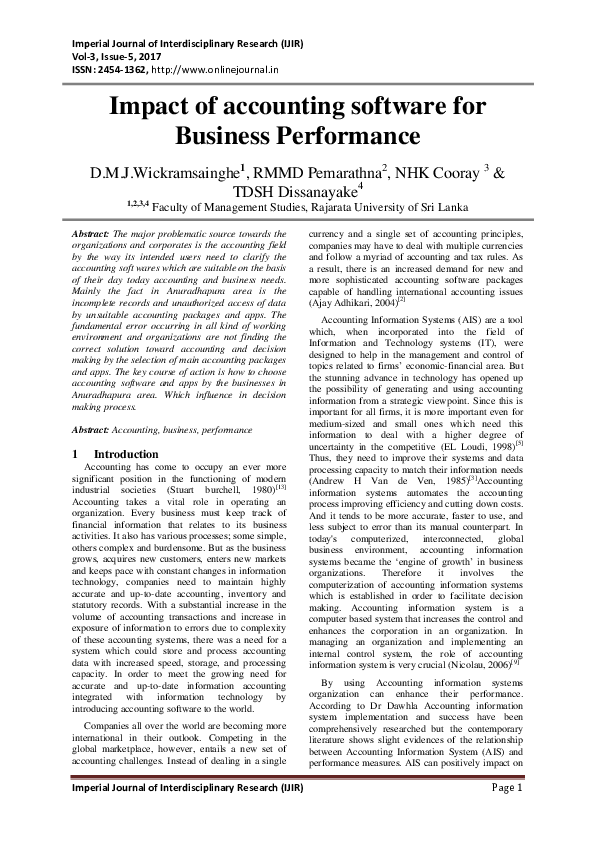
Impact of accounting software for Business Performance

The major problematic source towards the organizations and corporates is the accounting field by the way its intended users need to clarify the accounting soft wares which are suitable on the basis of their day today accounting and business needs. Mainly the fact in Anuradhapura area is the incomplete records and unauthorized access of data by unsuitable accounting packages and apps. The fundamental error occurring in all kind of working environment and organizations are not finding the correct solution toward accounting and decision making by the selection of main accounting packages and apps. The key course of action is how to choose accounting software and apps by the businesses in Anuradhapura area. Which influence in decision making process. Abstract: Accounting, business, performance
Related Papers
Mazedan International Research Academy
Naqeeb Ullah, Ph.D
The aim of the research was to empirically analyse the most effective accounting software for accountants, specifically in SMEs of UK. For the current research, primary quantitative research method was used, and information were gathered from 100 accountants working in SMEs of UK. For data analysis, descriptive and frequency analysis were used though using SPSS software. Findings revealed that Fresh book, Quick book, Zoho, Wave are mostly used in SMEs of UK. Further, it has also been analysed that Fresh book is one of the most effective accounting software due to higher quality, features, and fastest speed. Findings in the current research has significantly contributed in the information body of accounting sphere, and fill a gap in previous studies.
International Scientific days 2016 :: The Agri-Food Value Chain: Challenges for Natural Resources Management and Society :: Proceedings
Zuzana Bigasová
Rahmawati Rahmawati
Company’s management must have the information in order to make business and financial decisions. As management decisions have crucial importance, the information appears as a key instrument of governance. Information produced by the accounting information systems are important for the effective management of business activities, and according to the type of users, its information requests and needs vary. In this paper, particular attention is given to the accounting information systems and their importance for the business and financial decision making of individual users. Key words: application of accounting information system, accounting information system, decision making process, business decision.
Shanlax International Journal of Management
mahmoud manayseh
The purpose of this study is to qualitatively explain the quality of accounting application systems in order to promote the performance of a small, medium and large Sultanate of Oman company’s financial sector. The method used in this study is a semi-structured interview with whistleblowers regarding the quality of accounting information as a corporate budget accountant. As a result, high-quality accounting application systems analyze existing accounting information systems for quality such as security, accessibility, reliability, data integration, and accurate and timely information availability that can support business performance. We found that it was configured. Companies need to include these four elements in their accounting system. The conclusion of this study is that the company used a high quality accounting information system because it could meet all four factors and support the performance of the company’s employees and able to improve the quality of its employees perfo...
Hojjatallah Salari
Ibrahim Saheed
Vysoká škola bezpečnostného manažérstva v Košiciach
Maksym Bezpartochnyi
The book is addressed to those who want to open a business in Romania, to become entrepreneurs or managers and to accumulate necessary accounting information on starting and managing a business. Accounting is the "ace up the sleeve" of any manager because, with the information provided, one can know the past, present and predict the future of a company. This paper presents the theoretical elements of the concepts used in accounting necessary for any manager. The book is intended for those interested in this field whose training can be completed with the ABC of accounting.
IJMSBR Open Access Journal
Regarding to the potential capabilities of accounting information systems (AIS) and software packages as computer AIS, and regarding to the continuous changes and rapid developments of economical units, provision of relevant, reliable, and comparable financial information is necessary. To investigate this, the question is that whether IT affects qualitative features of accounting information in financial statements?To do this research, a sample of 105 confidant auditors from Tehran Stock Exchange and professors of Islamic Azad University, region 5, was selected by Simple Random Sampling (SRS) method as questionnaires. Inferential statistical method, Clemogrov-Smironov test, and t-student test were used. It was found that accounting information systems and softwares highly affect on comparison capability and relevance of financial statement, but they lowly affect on reliability of them. Also, variance analysis was done for three indices of relevance, reliability, comparability. To do this, pair groups were compared by t-test. In this test, first rank was for relevance.
Journal of Applied Science, Information and Computing
Olusegun Alao
Tracking the various business parameters variables related to the business’s goal is a difficult task to do without the right tools. Failure to properly put in place accounting processes that oversee and manage such parameters has led to the demise of many promising small and big organizations. This work looks into how the use of accounting software affects the quality of reporting while focusing on the tools and application modules that make the process hitch-free. Because of the lack of local data and feedback from first-hand operators of accounting software, the study infers knowledge from other works on the effectiveness of accounting software in organizational reporting. It also looks into the tools that come with Microsoft Excel, one of the most widely used accounting software in Nigeria. We make use of sales data gotten online to implement this tool and the result shows that the Microsoft Excel application is capable of minimizing errors, automating tasks, and forecasting. By...
International Journal of Advanced Computer Science and Applications
Agustinus Winoto
Loading Preview
Sorry, preview is currently unavailable. You can download the paper by clicking the button above.
RELATED PAPERS
CERN European Organization for Nuclear Research - Zenodo
Aliona Lîsîi
ahmad abumusa
International Journal of Professional Business Review
Sinan Al-Shaikh
SSRN Electronic Journal
Morteza Ramazani
IJAERS Journal
International Journal of Recent Research Aspects ISSN 2349-7688
International Journal of Accounting & Finance Review
SUSAN PETER TERU
niyonsenga gedeon
European Journal of Business and Management
ayad Shaker Sultan
James Mageto
Jurnal Ilmu Keuangan dan Perbankan (JIKA)
Meifida Ilyas
Dzoar J . Bakr
Shadrack Joe
Atlantis Press
Nur Zeina Maya Sari
ganeesha kaluarachchi
International Journal of Scientific & Technology Research
Asep Darmansyah
Akbar Rahimipoor
Gaurav Baral
Research Journal of Finance and Accounting
Alexander Decker
Information Management and Business Review
RELATED TOPICS
- We're Hiring!
- Help Center
- Find new research papers in:
- Health Sciences
- Earth Sciences
- Cognitive Science
- Mathematics
- Computer Science
- Academia ©2024

COMMENTS
Abdel-Hamid (Citation 1984) explored software project performance using interval-based overtime and dynamic hiring through SD modelling. Abdel-Hamid (Citation 1989) ... Li, S. (2008), "A Generic Model of Project Management with Vensim" (master's thesis, Faculty of Engineering and Science, Agder University). Google Scholar.
This thesis presents a series of novel approaches based on empirical insights that attempt to support developers at the task of designing efficient code. We present contributions in three aspects ...
1. Reference Management Software. Comprehensive reference management software, such as Zotero, Mendeley, or EndNote, is a must-have tool for any thesis writer. These tools help you organize and manage your references efficiently, generate citations in different formats, and create a bibliography effortlessly.
Completing your dissertation or thesis requires a hearty investment of time, effort and hard work. There's no shortcut on the road to research success, but as with anything, there are ways to optimise the process and work smarter.. Here, we'll share with you a wide range of apps, software and services that will make your life a little easier throughout the research process.
Unfortunately, performance variability is often seen as unavoidable fact of commodity computing systems. This thesis challenges that notion, and shows that we can obtain 0-cycle variability for CPU-bound workloads, and <0.3% variability for workloads that touch memory. It shows how a programmer might take an arbitrary system and tease out and ...
even average programmers will need to be able to write fast code. Software performance engineering offers great promise to provide computer performance gains in the post-Moore era, but developing efficient software today requires substantial expertise and arcane knowl-edge of hardware and software systems.
Master Thesis A MODEL FOR SOFTWARE DEVELOPMENT TEAM PERFORMANCE . 1 Author: T.S. Kooijman, B.Sc. Student ID: 3970183 [email protected] ... Before we can determine how we can accurately measure the performance of a software development team, we need to determine what constitutes an accurate and objective metric in the first place. ...
3. EndNote. EndNote is a trusted reference management software used by researchers, students, and librarians. It excels in storing, organizing, and formatting bibliographic references, offering a wide range of citation styles to meet your thesis's specific requirements. 4.
FreeMind, a mind mapping software, is an innovative tool that's increasingly being utilized in the realm of academic writing, particularly for thesis and dissertation preparation. This free, open-source software offers a dynamic way to organise: Thoughts. Research, and. References.
Dustball is a free plagiarism detection tool that will easily find plagiarized parts in your text. ThePensters is free plagiarism-checking software for students and beyond. It analyzes the percentage of plagiarized text from web pages. Also, with the help of this tool, you can create a bibliography by ISBN code.
List of dissertations / theses on the topic 'Software Performance'. Scholarly publications with full text pdf download. Related research topic ideas.
from hardware and limiting the scope of the application domain. This thesis proposes a new software/hardware co-design approach to achieving 3P platforms, called the loop-task accelerator (LTA) platform, that provides high productivity and portability without sacrificing performance or efficiency across a wide range of applications.
s and store performance data. The following section describes a number of specific performance analysis tools, from commonly used tools to more recent ones, with a longer section on possible extensions and customisatio. s to the Linux Trace Toolkit. S. ction 5 is the conclusion.3. Performance Data Coll. ction, Processing and StorageIn a simple ...
PhD Dissertations in the Area of Software Engineering. This list is provided as a resource for PhD candidates, researchers, scientists, and engineers who are actively pursuing advanced research in Software Engineering. If you are a PhD graduate, we invite you to submit information about your dissertation using this form.
Elaine J. Weyuker, Senior Member, IEEE, and Filippos I. Vokolos. Abstract ÐAn approach to software performance testing is discussed. A case study describing the experience of using this approach ...
Software engineering and technology are prevalent areas for thesis at the department, and many candidates ask for thesis topics every academic year. We do our best to accommodate the requests, but the applicants can smoothen the process by taking an active role in thinking about potential topics based on the themes presented below.
factors(Kandula, 2006). Macky and Johnson (2000) pressed that the importance of performance management system is on continuously improving organization performance and this is achieved by improving individual performance. Therefore, improving employee performance by using performance management system is vital.
This thesis examines two critical aspects of defining the hardware-software interface: quality and performance. The first aspect is creating a high quality specification of the interface as conventionally defined in an instruction set architecture. The majority of this thesis is concerned with creating a specification that covers the full scope ...
This doctoral thesis aims to improve the understanding of the use of Kanban in software engineering. The research was performed in two phases: 1) analysis of scientific literature on Kanban in software engineering and industrial engineering and 2) investigation of Kanban implementation trends in software companies.
However, the purpose of the study was to. examine the impact of accounting software for. business perf ormance on profitability level of small. scale business. To meas ure the business perform ...
The key course of action is how to choose accounting software and apps by the businesses in Anuradhapura area. Which influence in decision making process. ... Mihiri and RMMD, Pemarathna and Cooray, N. H. K. and Dissanayake, Sulochana, Impact of Accounting Software for Business Performance (2017). Imperial Journal of Interdisciplinary Research ...
impact of accounting software characteristics on business performance of firms in. Malaysia as 0.711 and adjusted R Square 0.691, indicating that 69.1% of the. variance of accounting software ...
See Full PDFDownload PDF. The aim of the research was to empirically analyse the most effective accounting software for accountants, specifically in SMEs of UK. For the current research, primary quantitative research method was used, and information were gathered from 100 accountants working in SMEs of UK. For data analysis, descriptive and ...